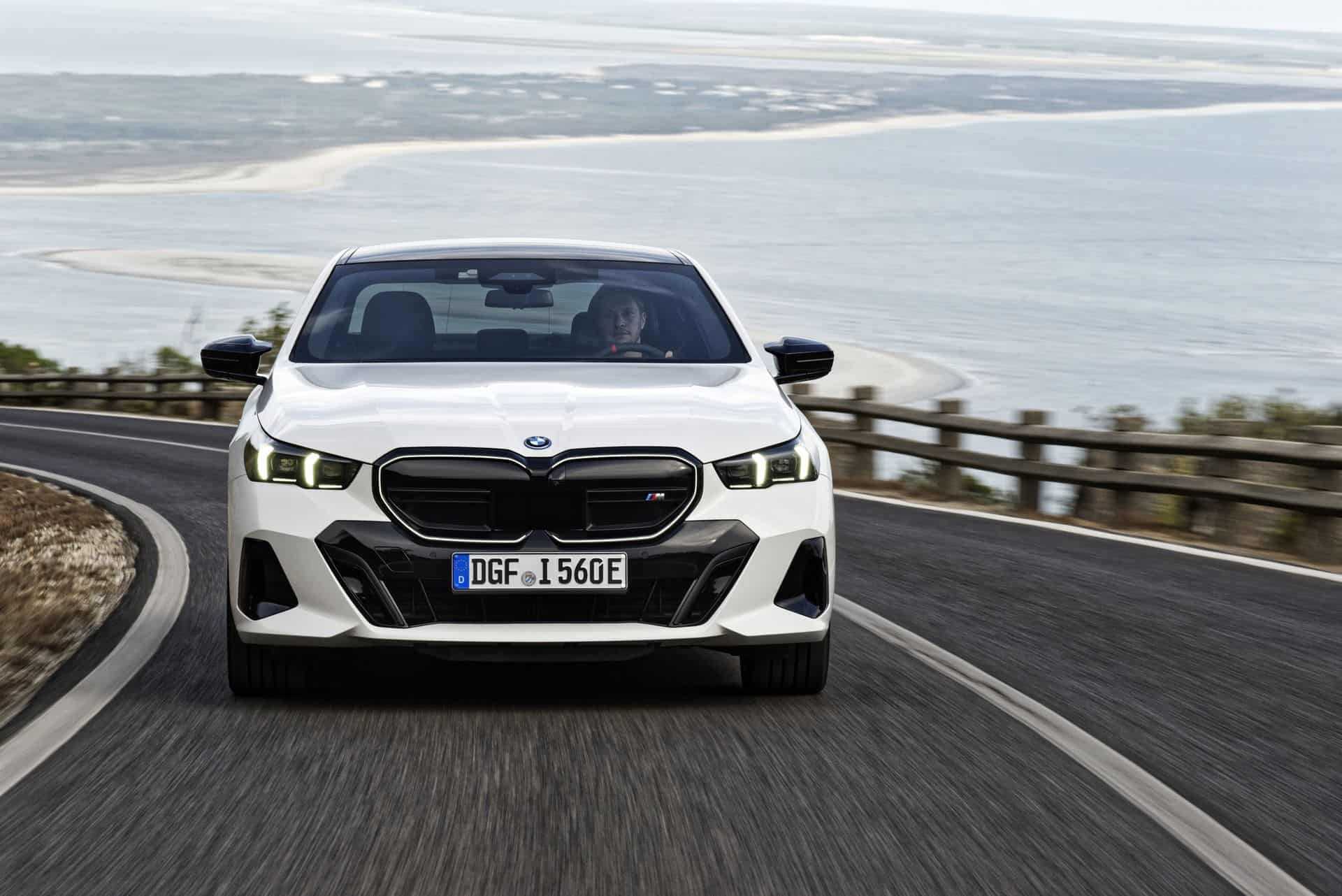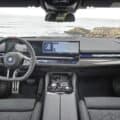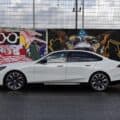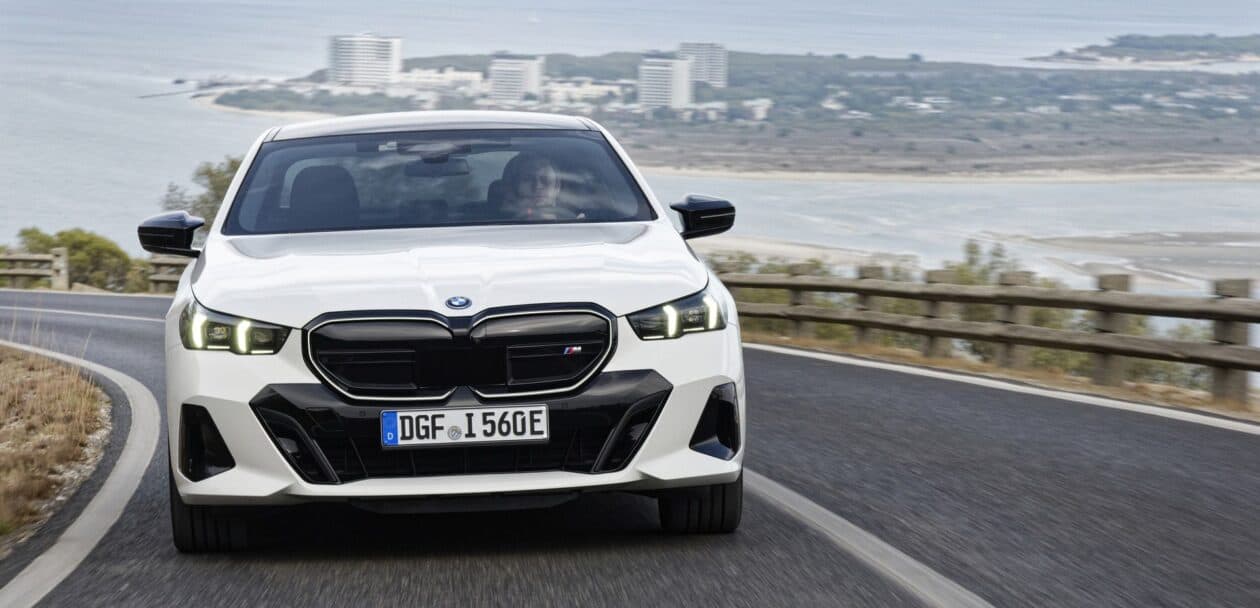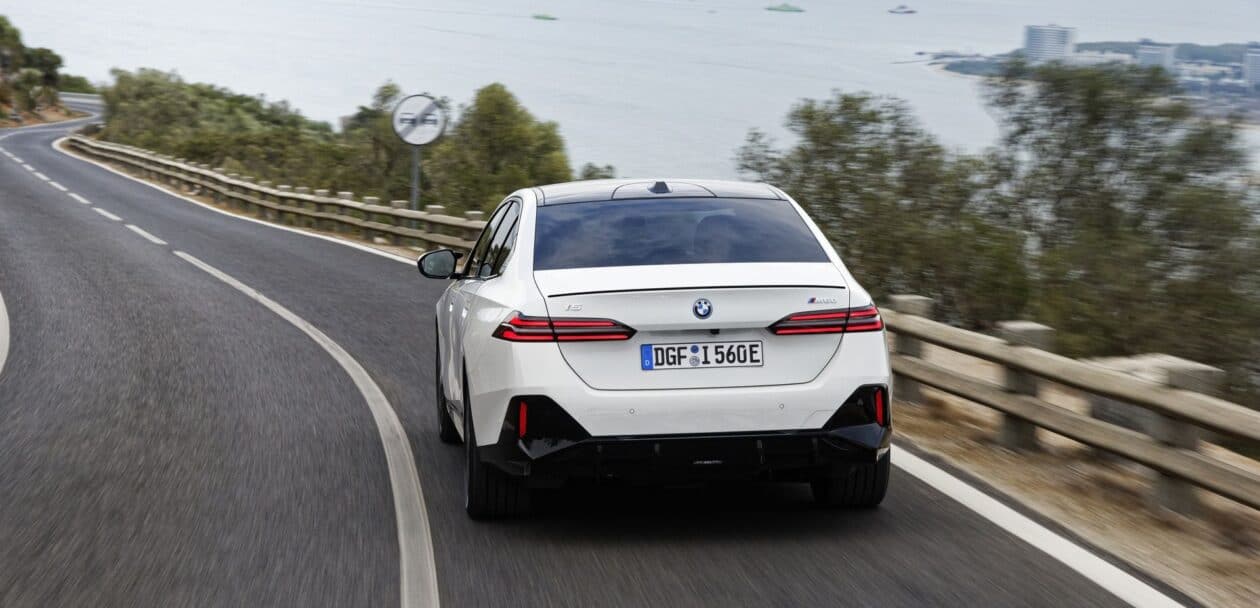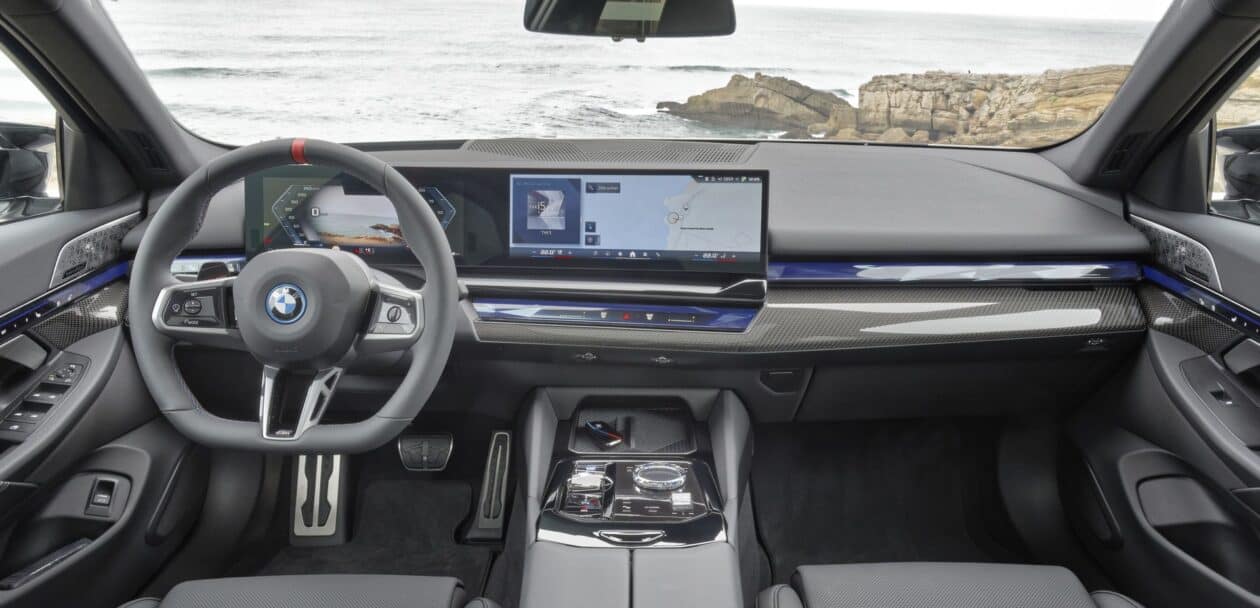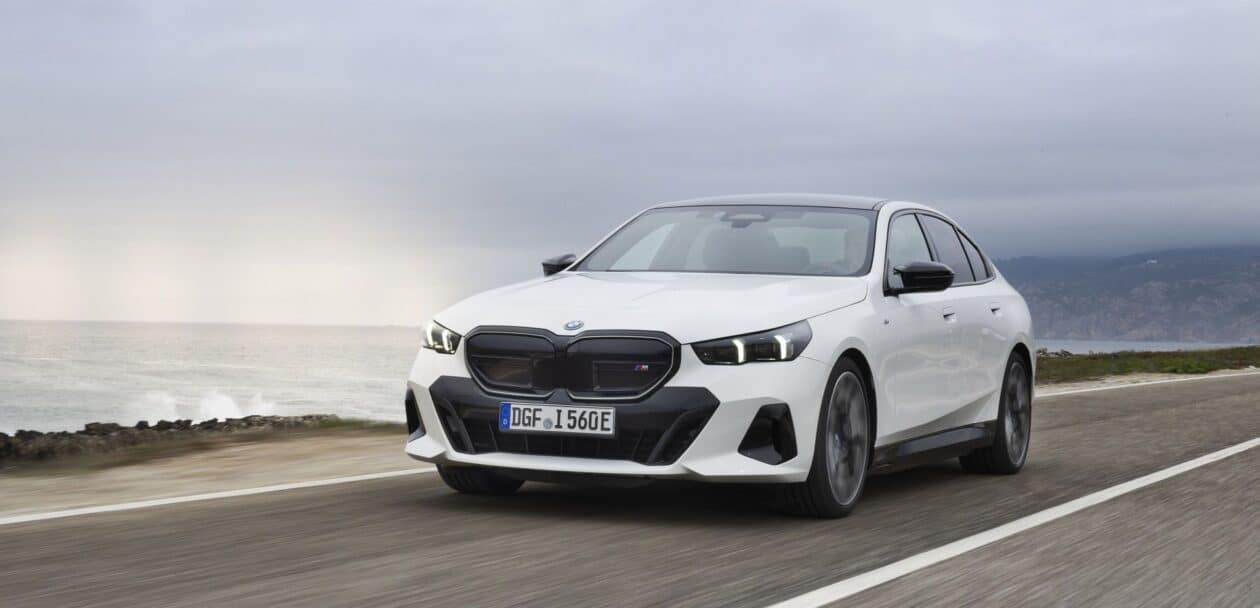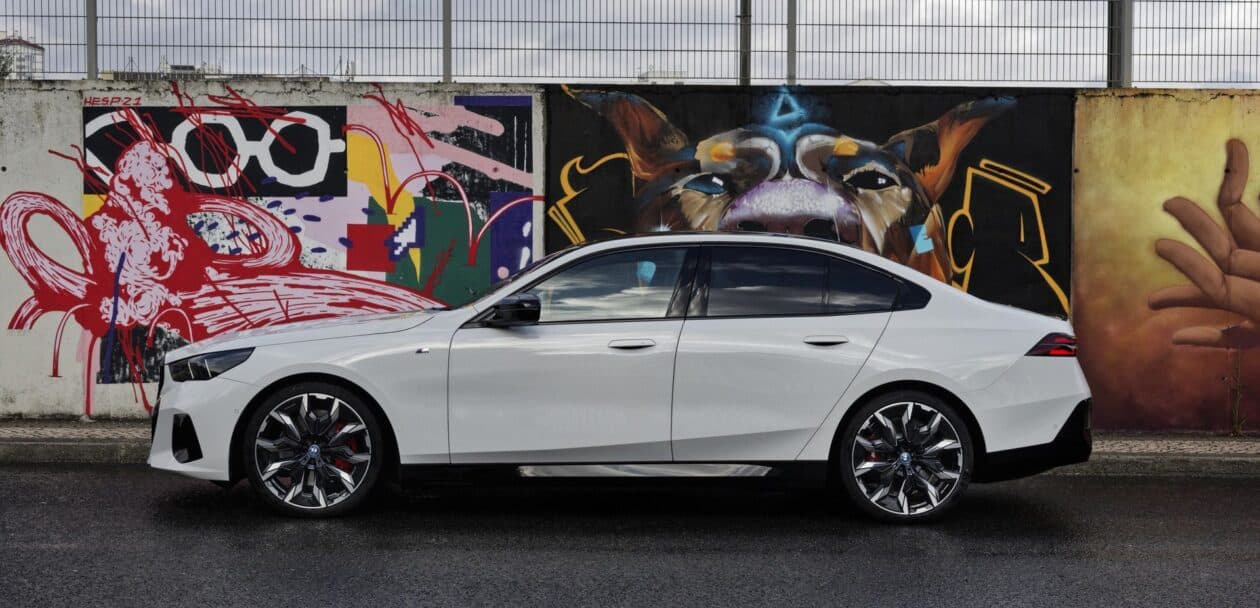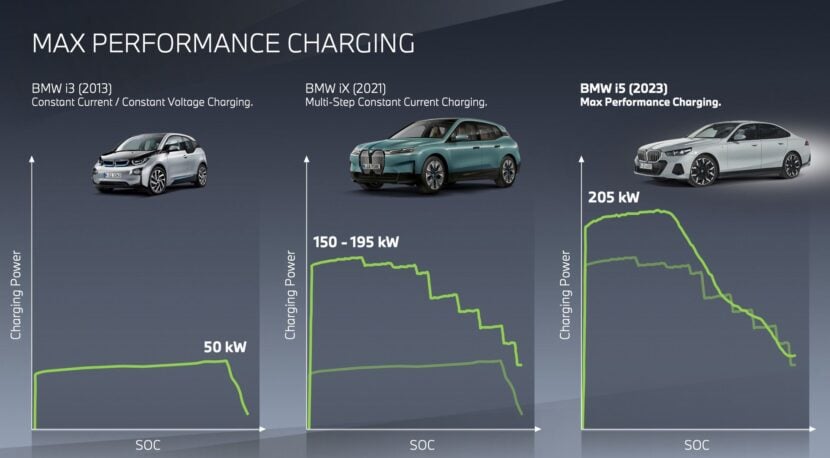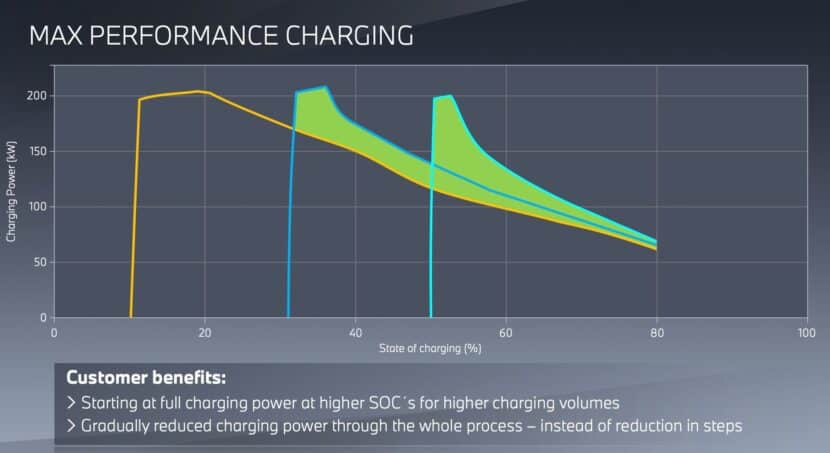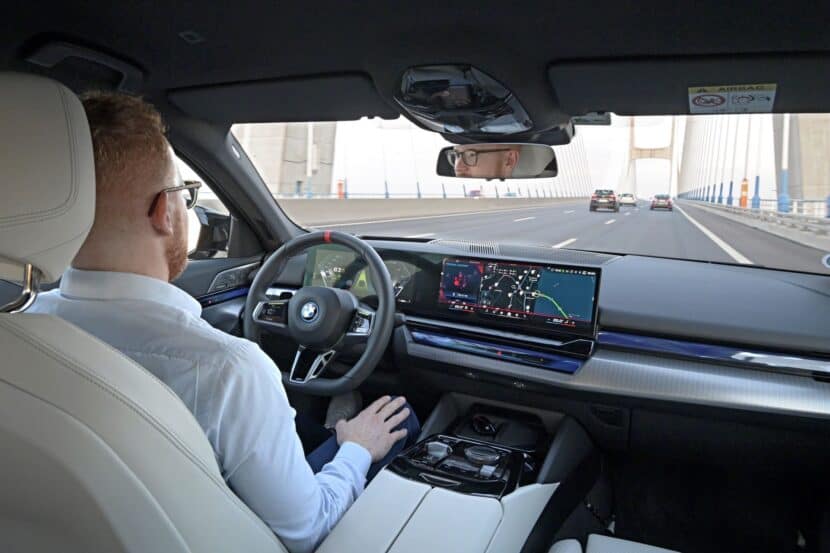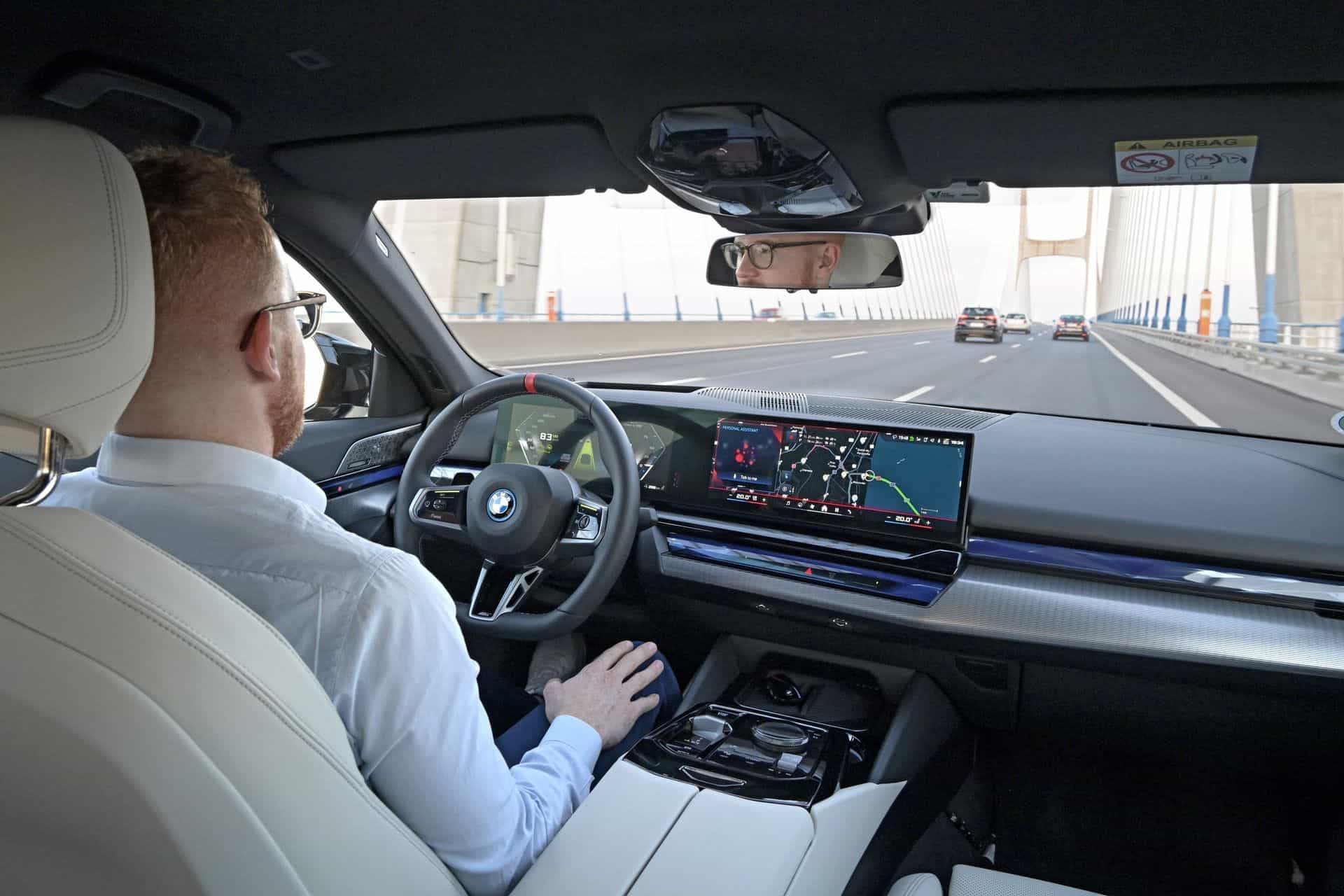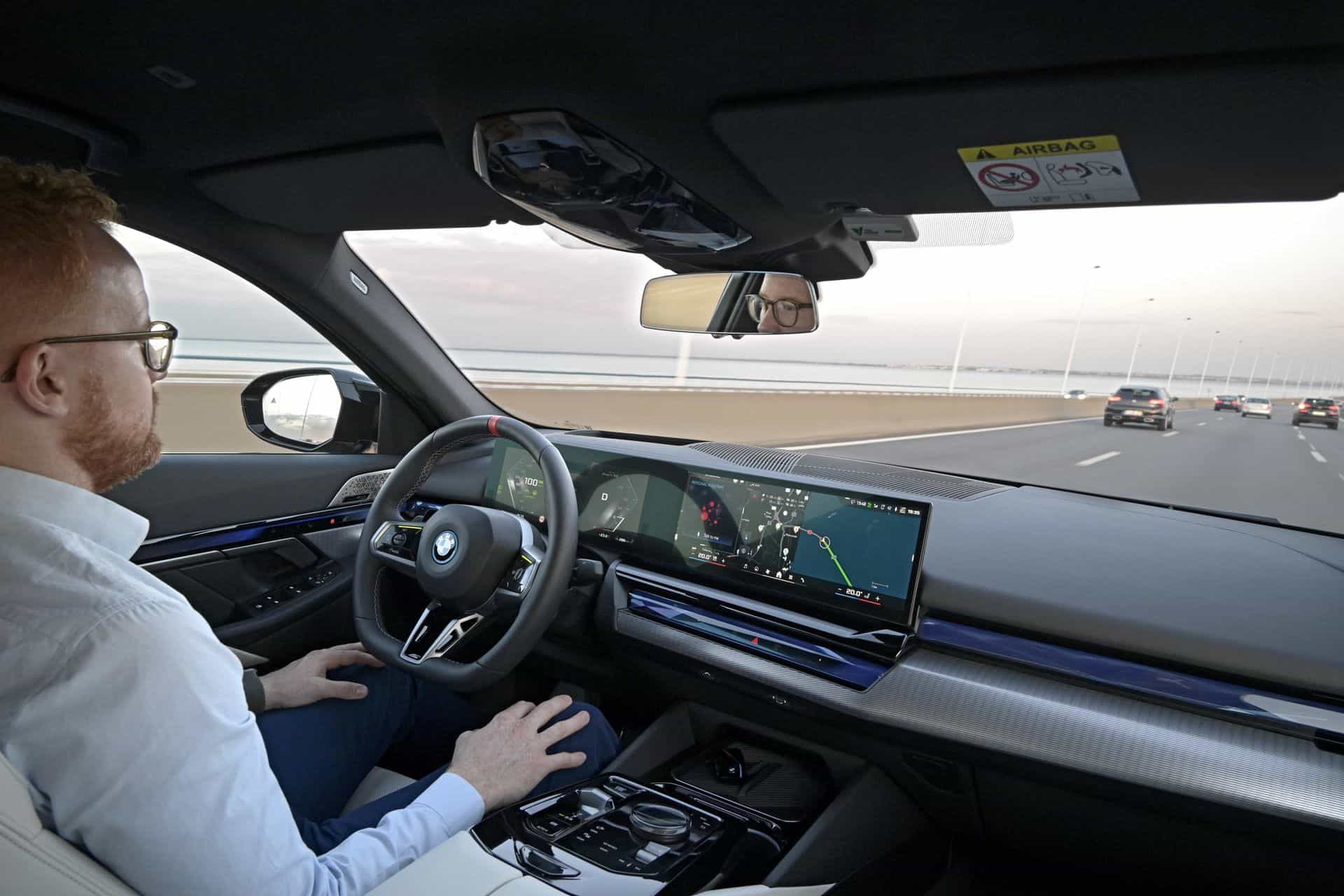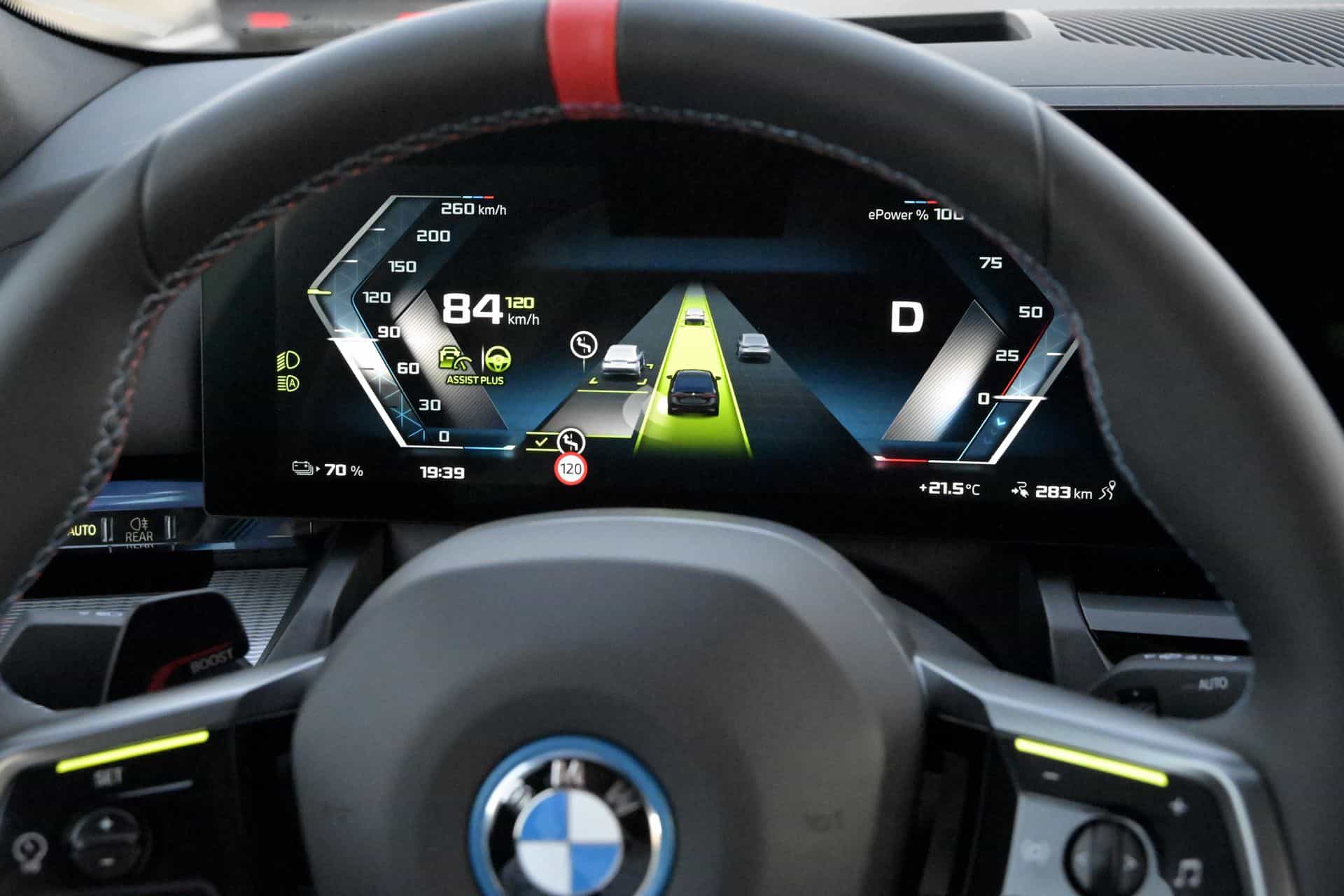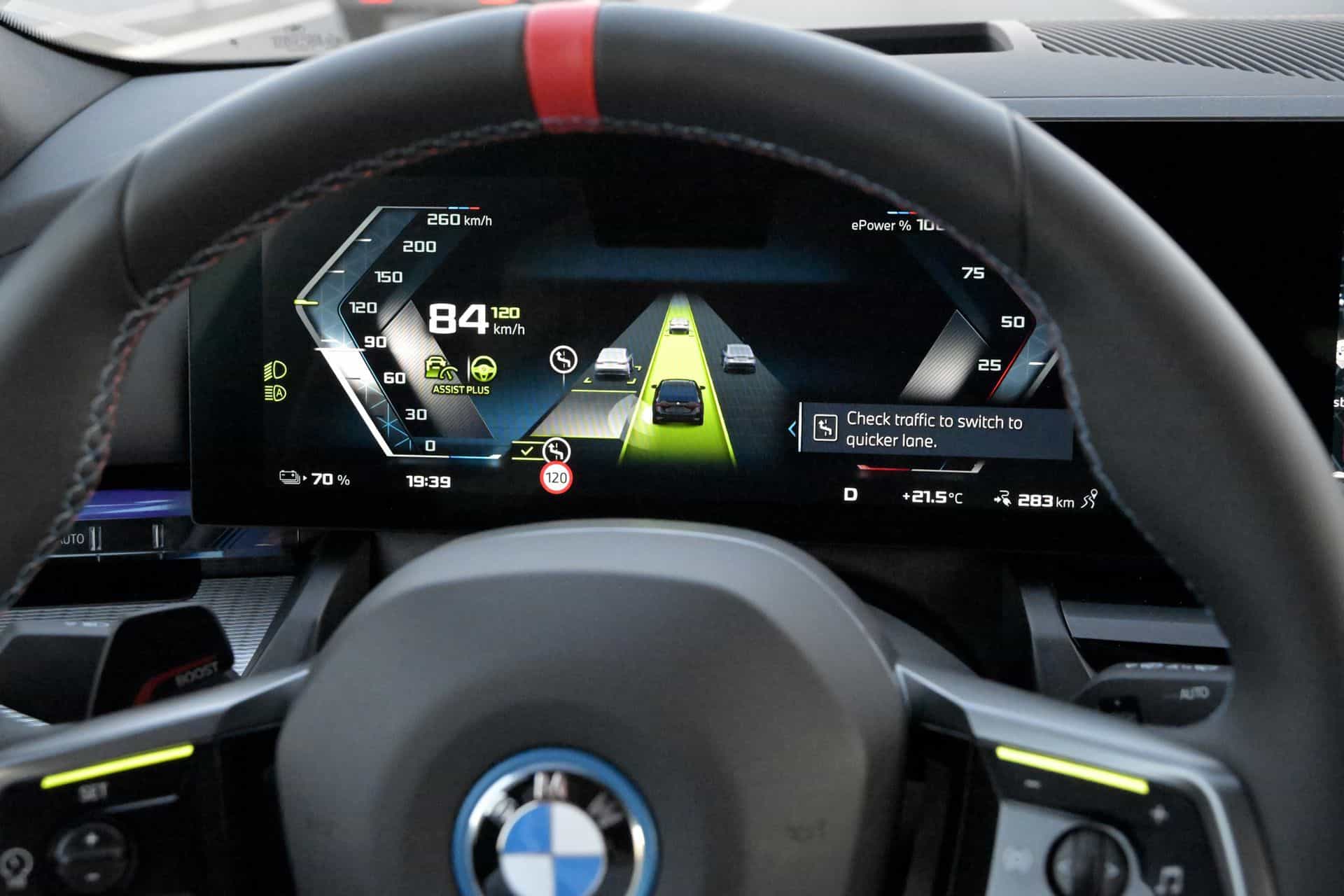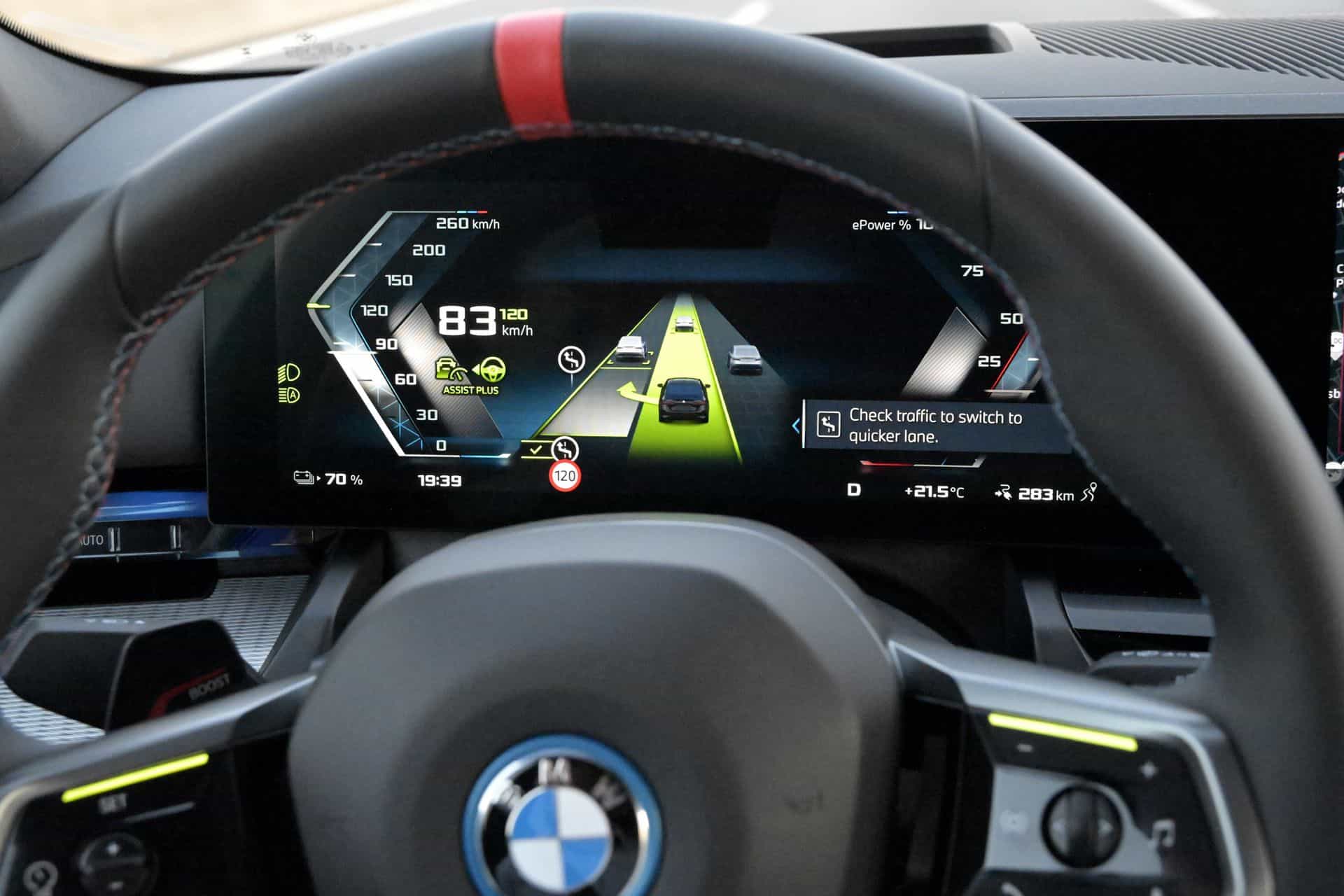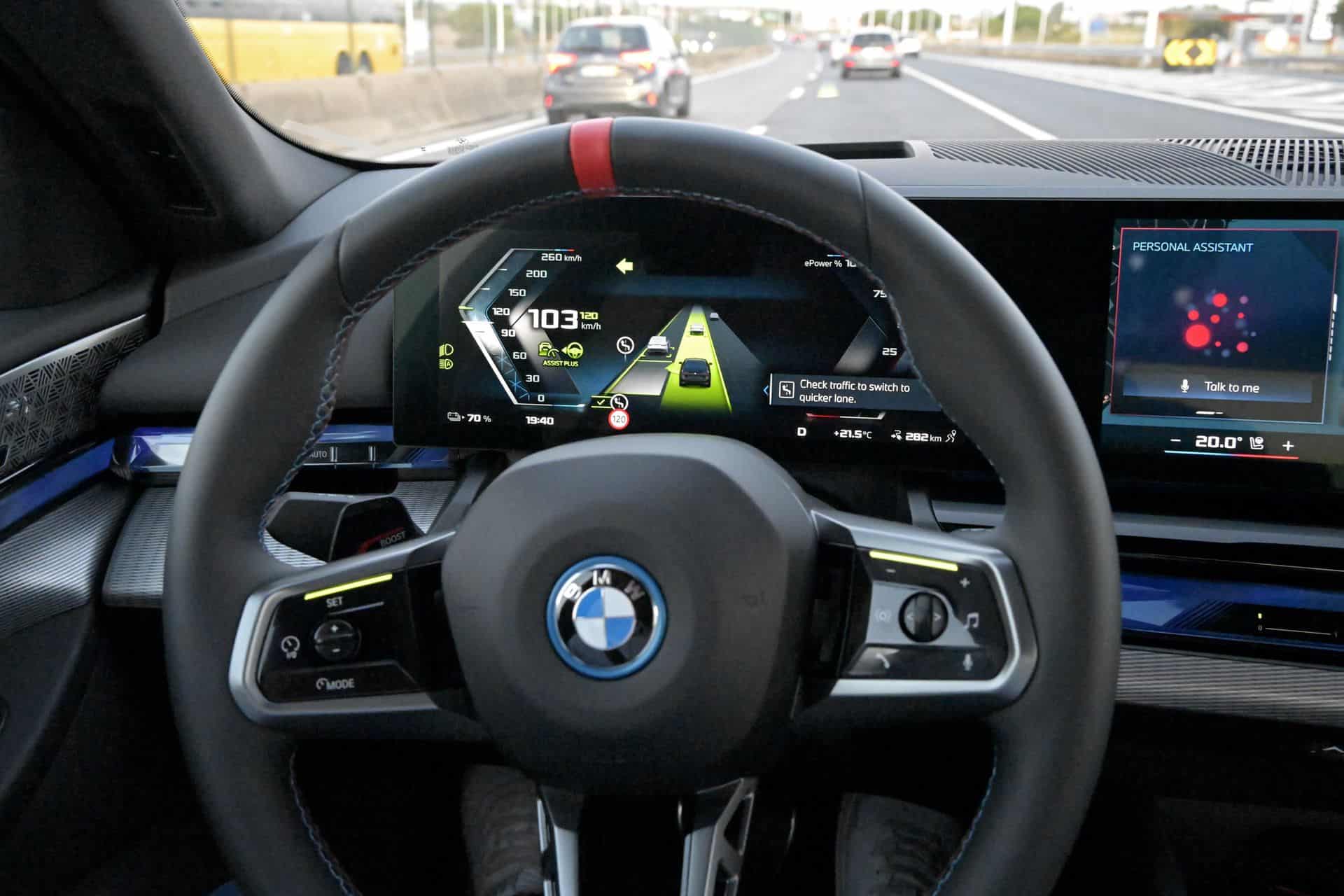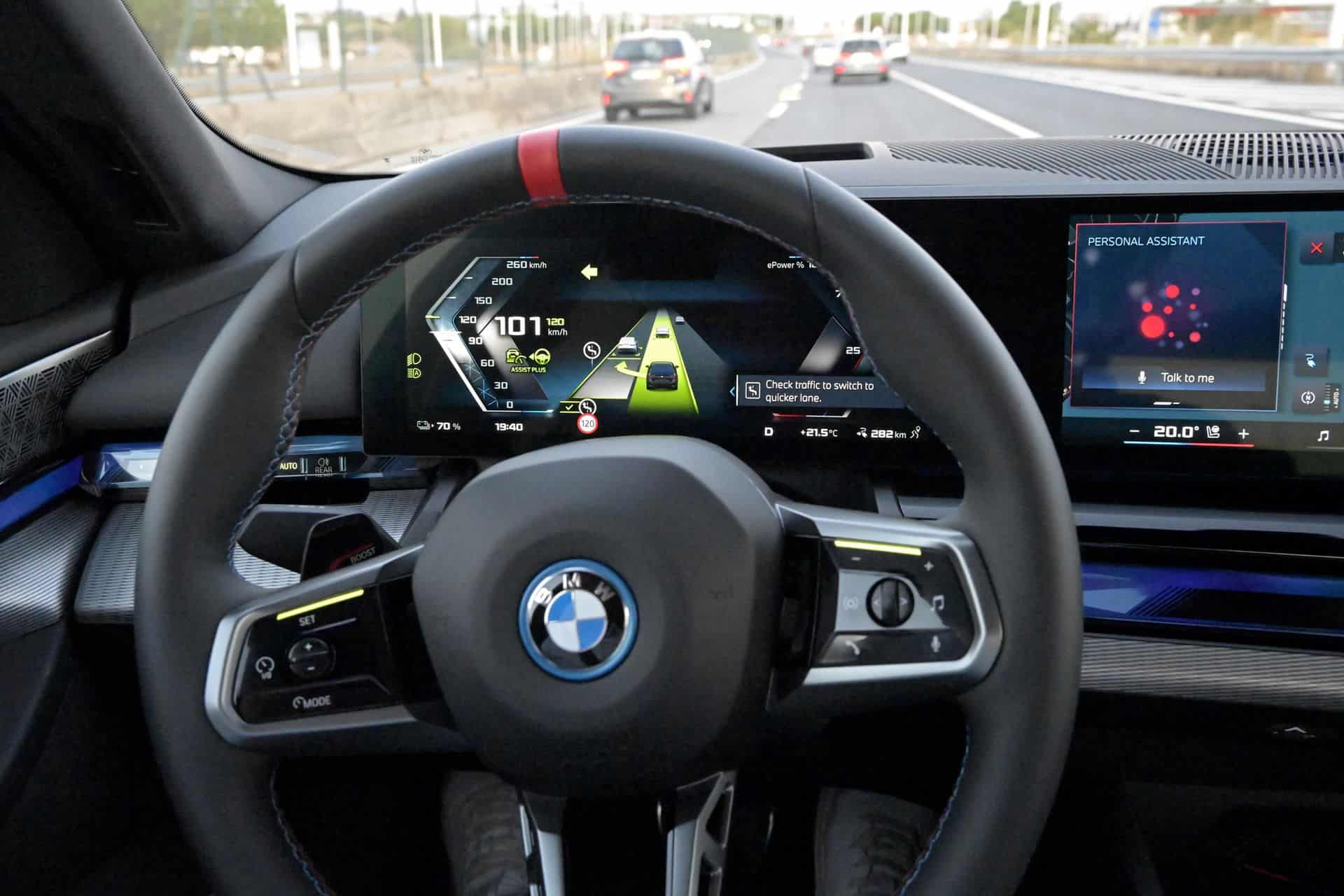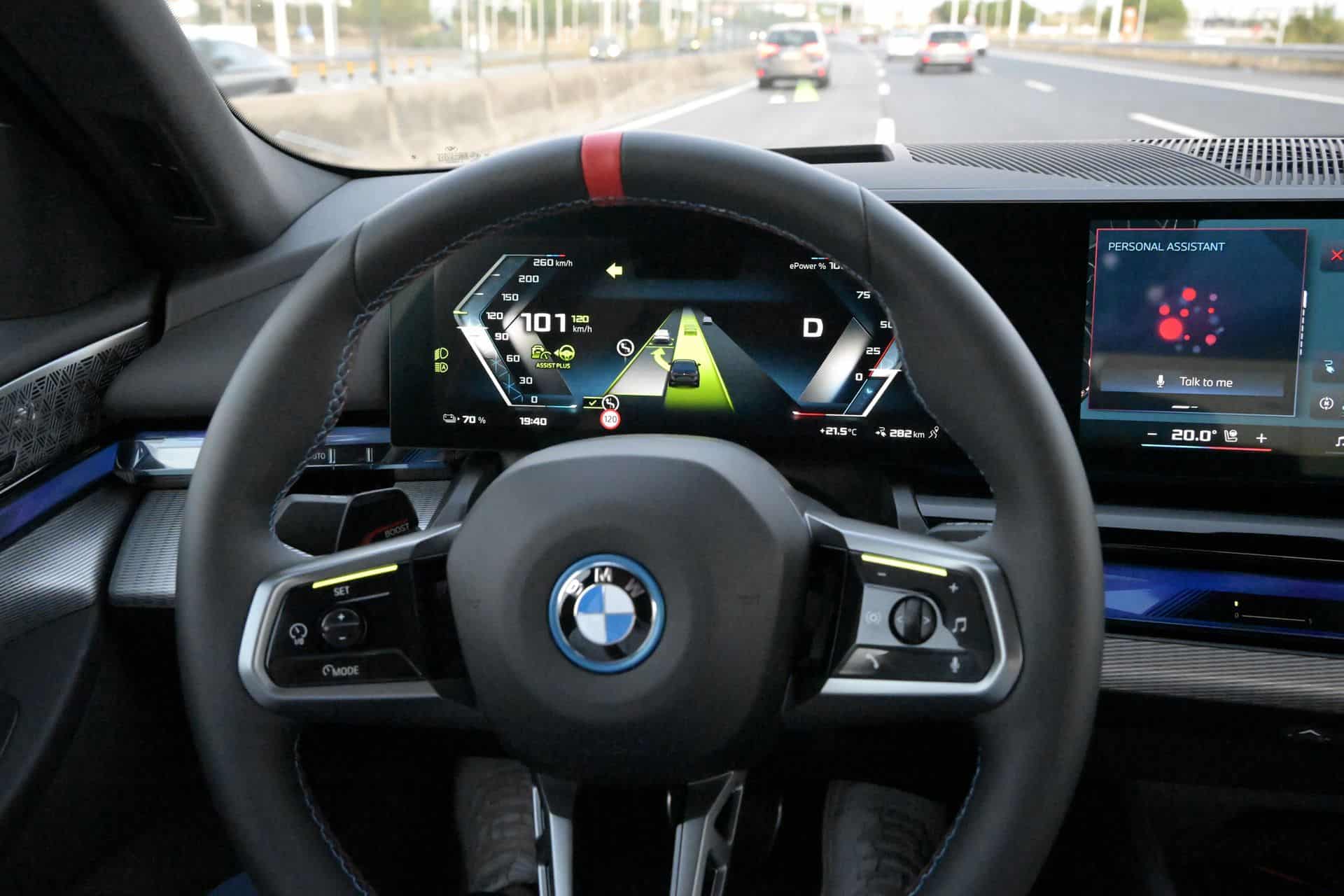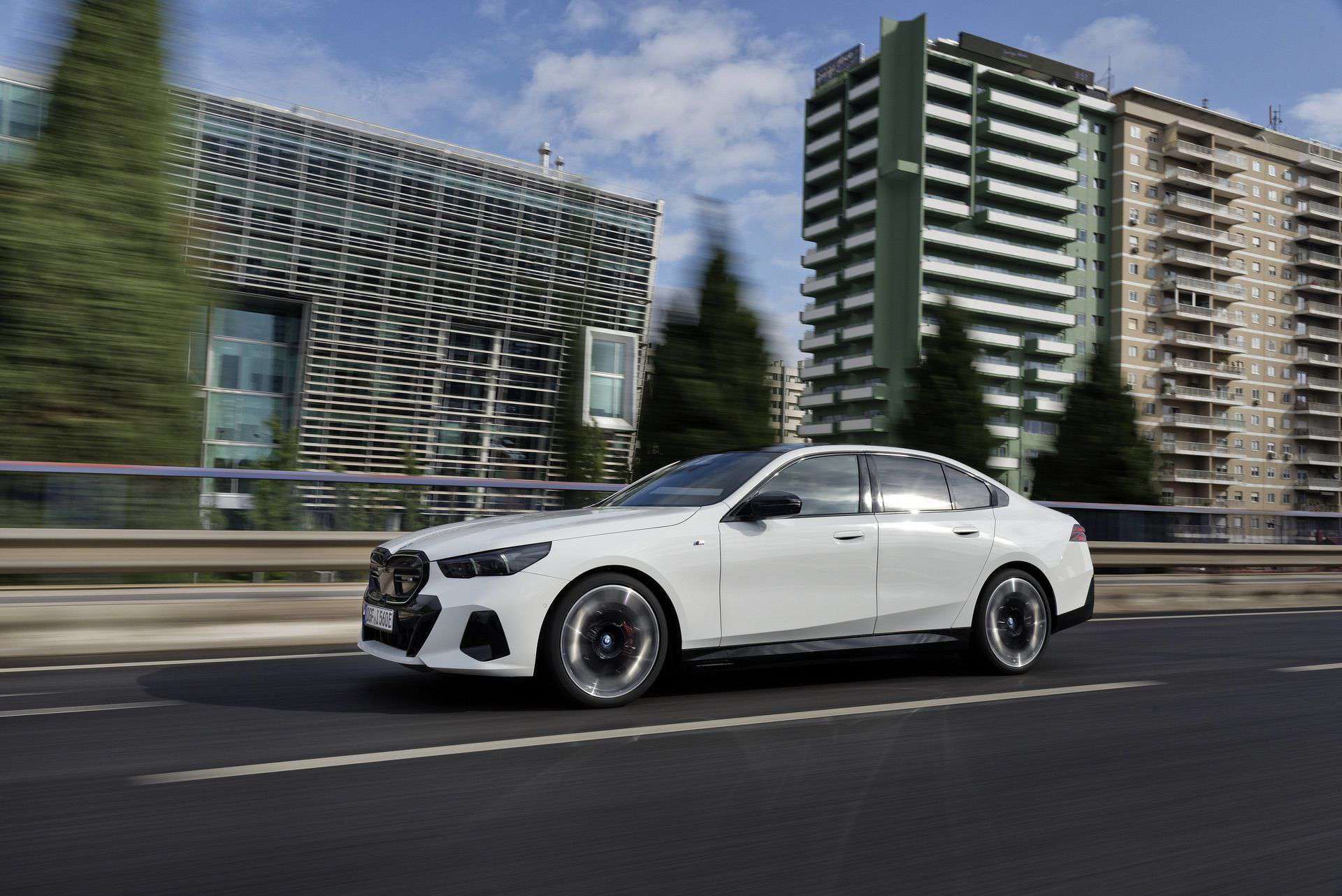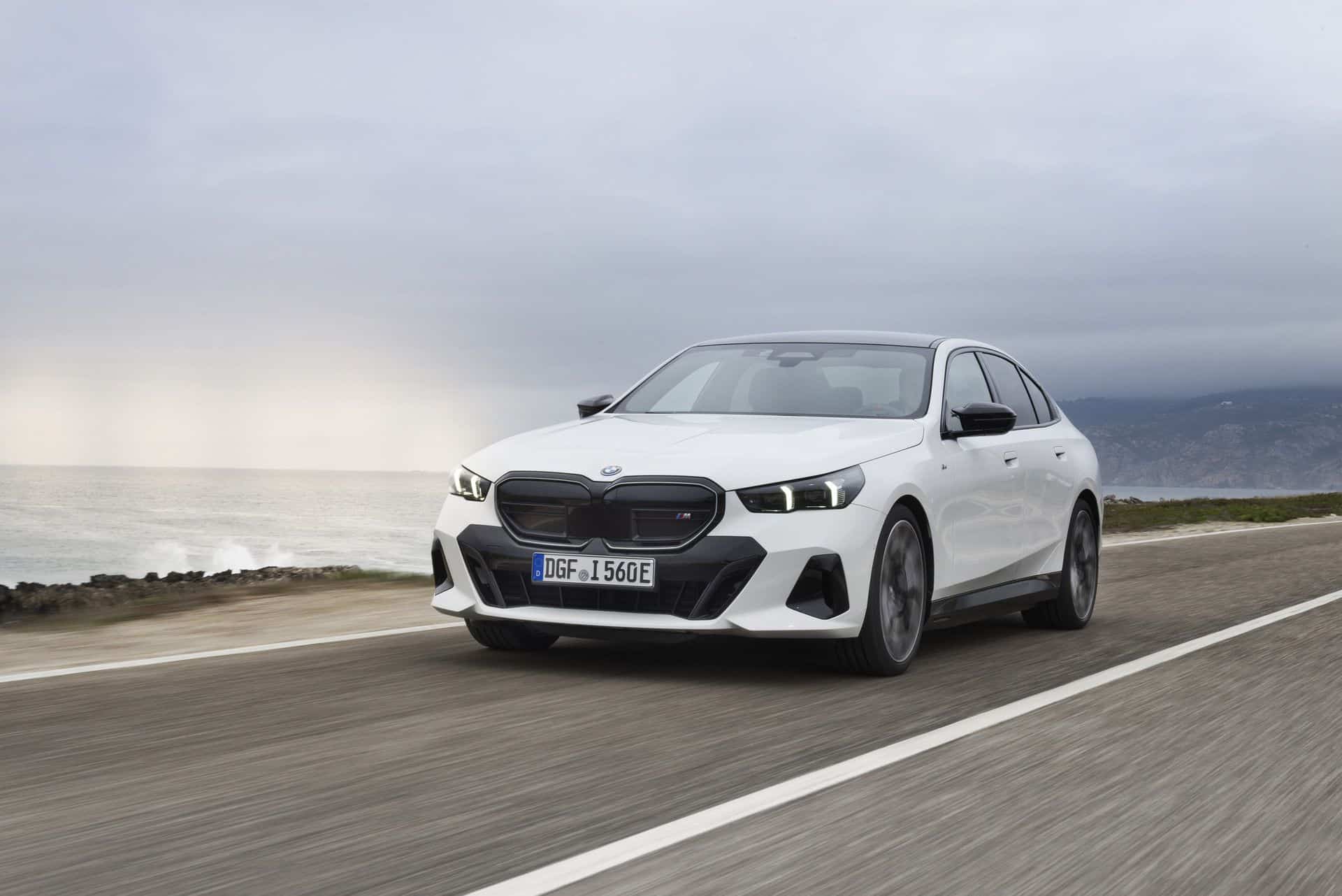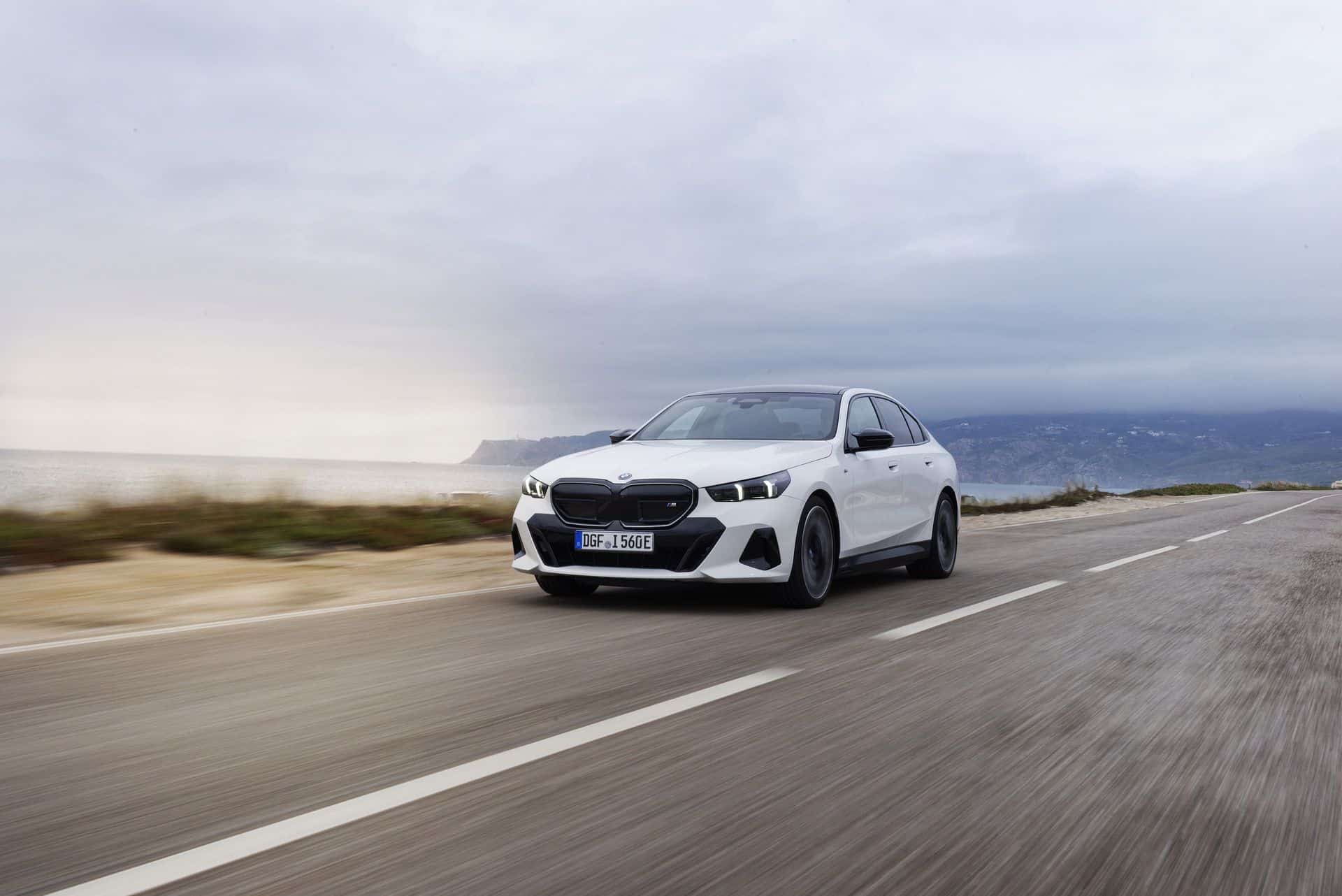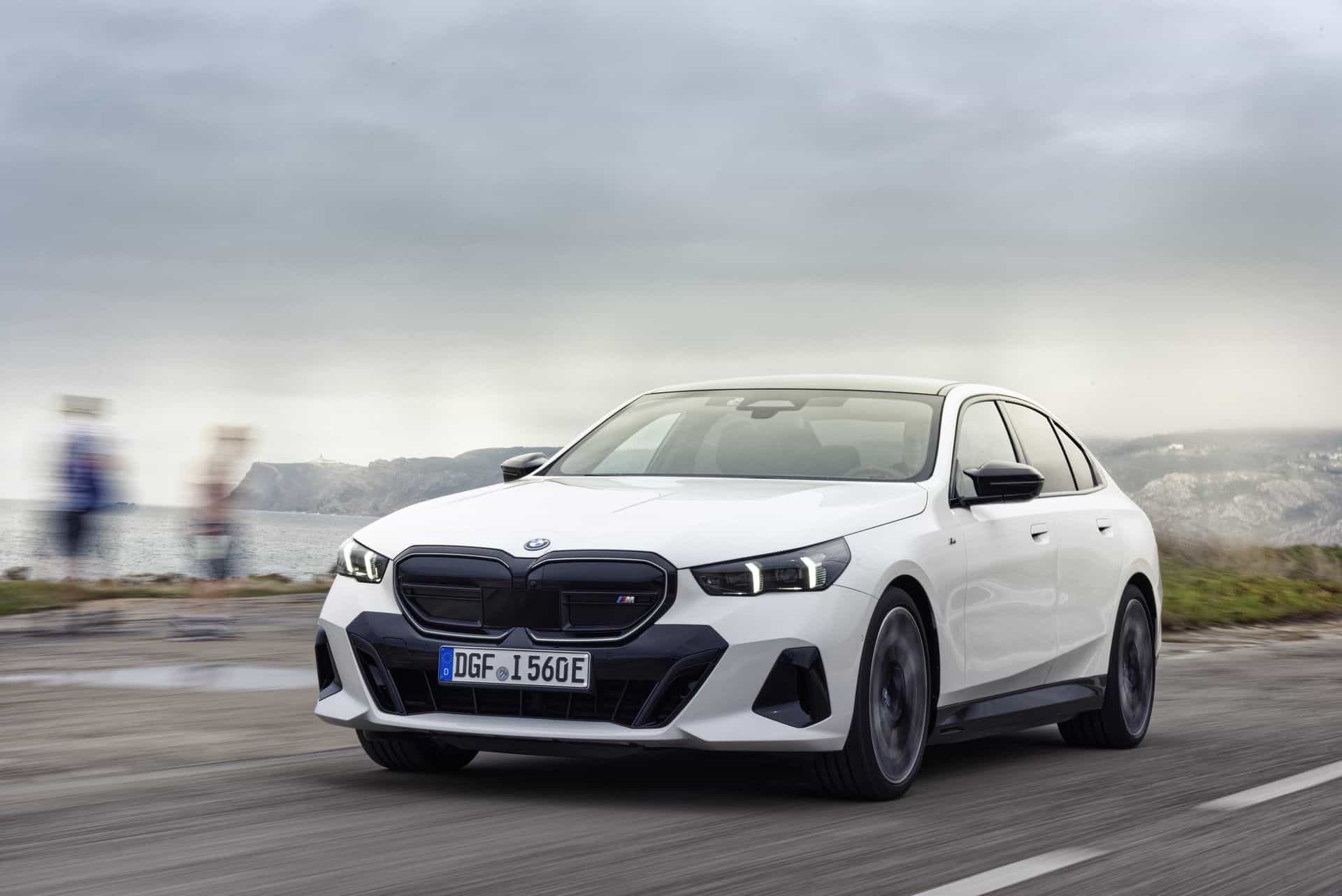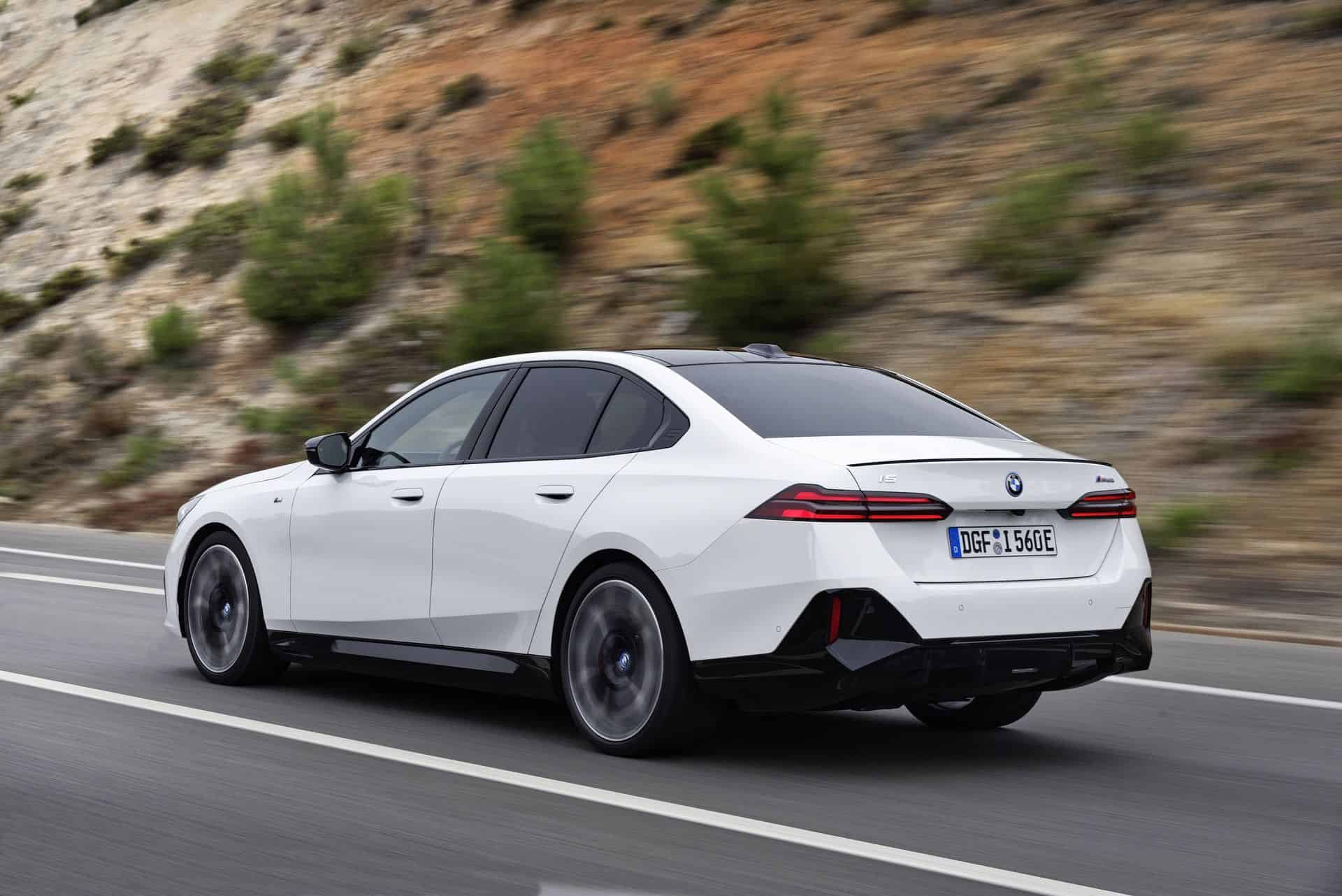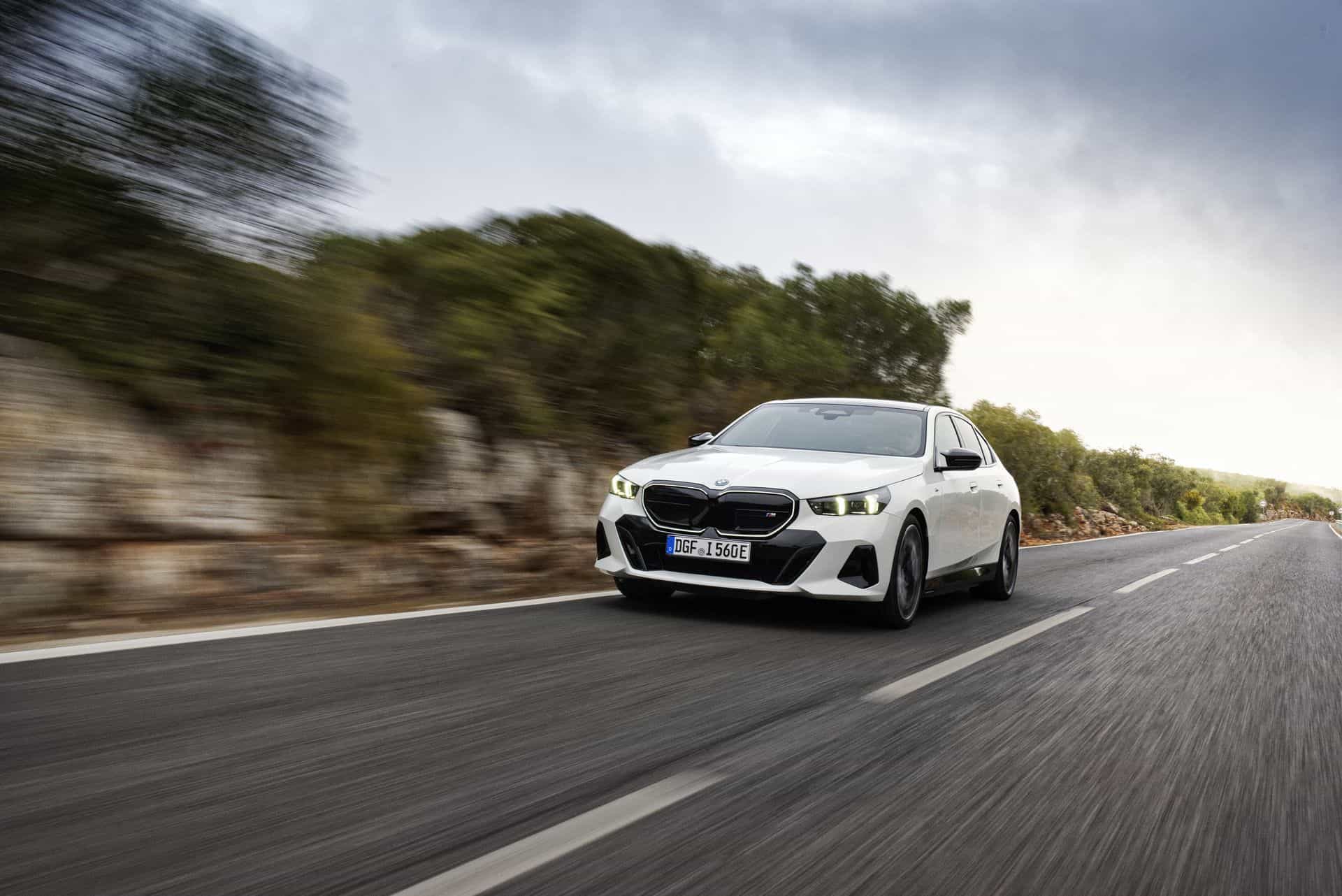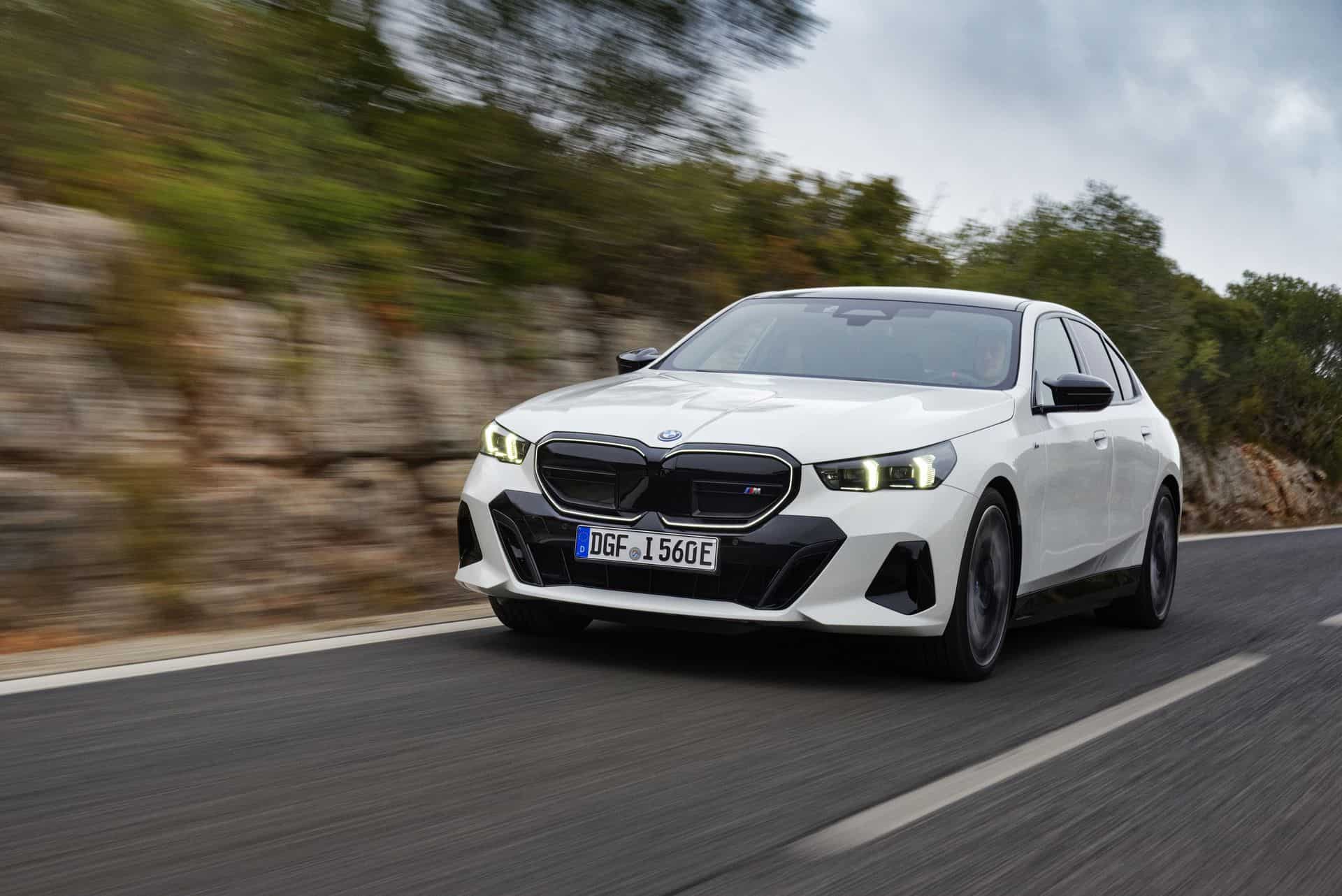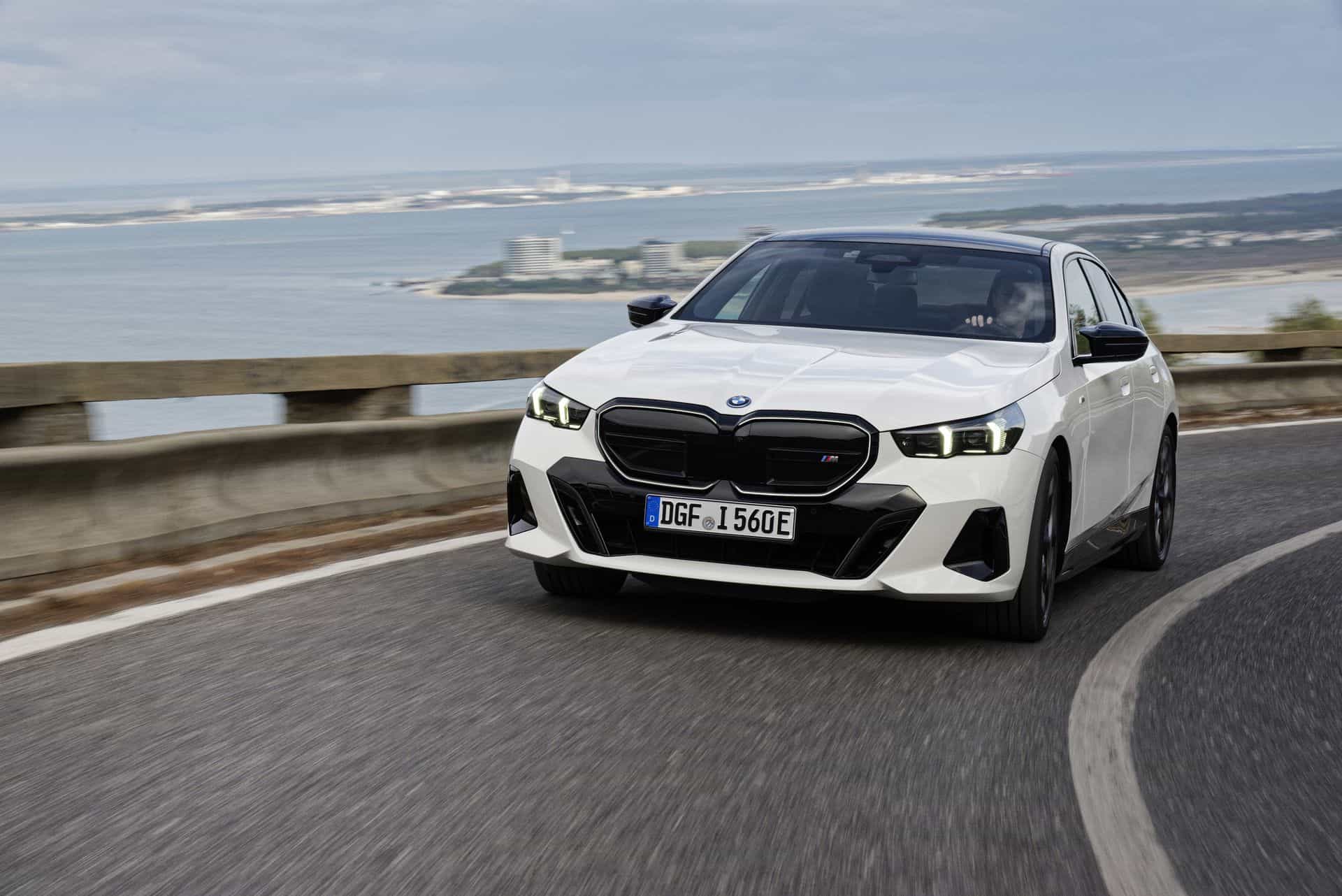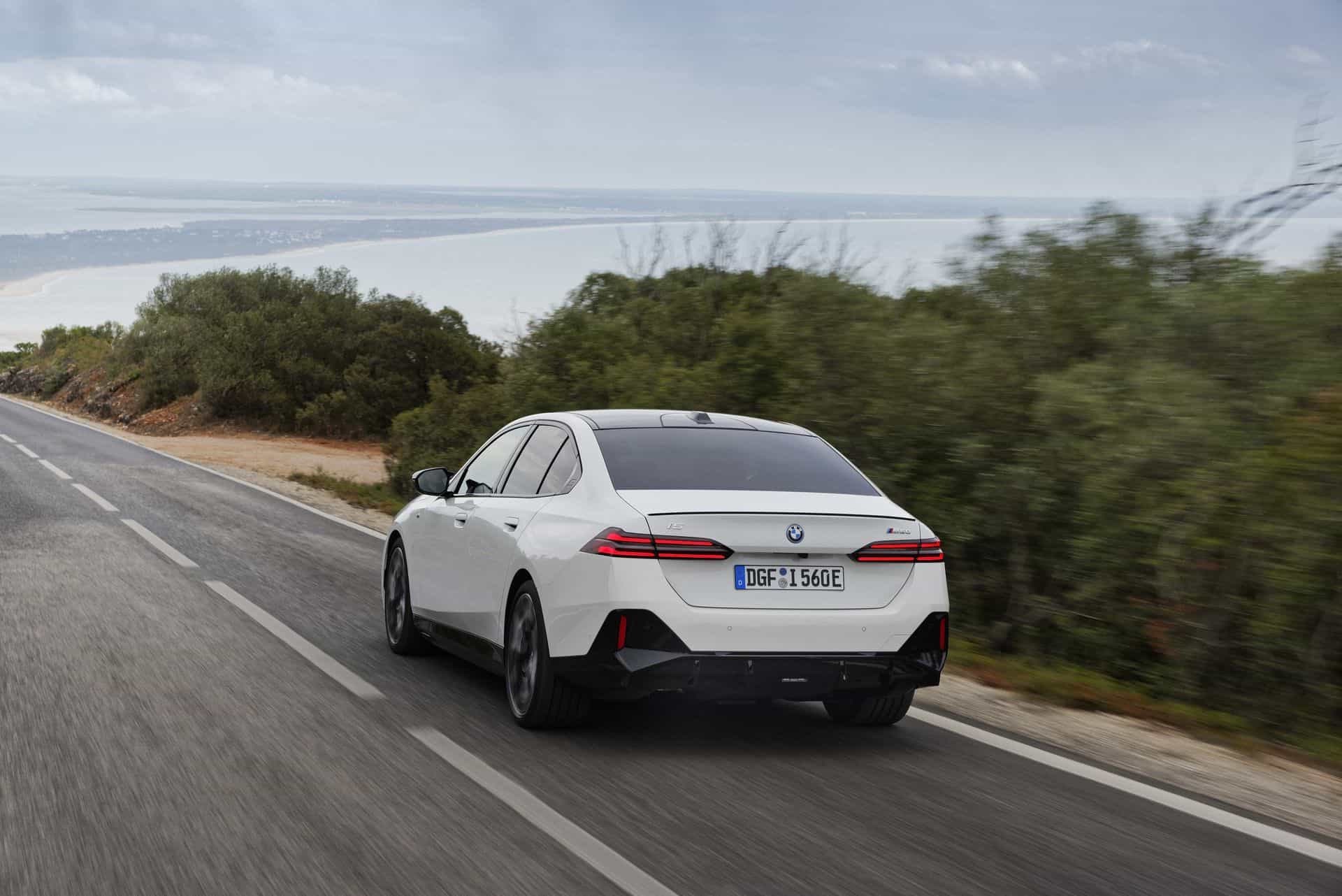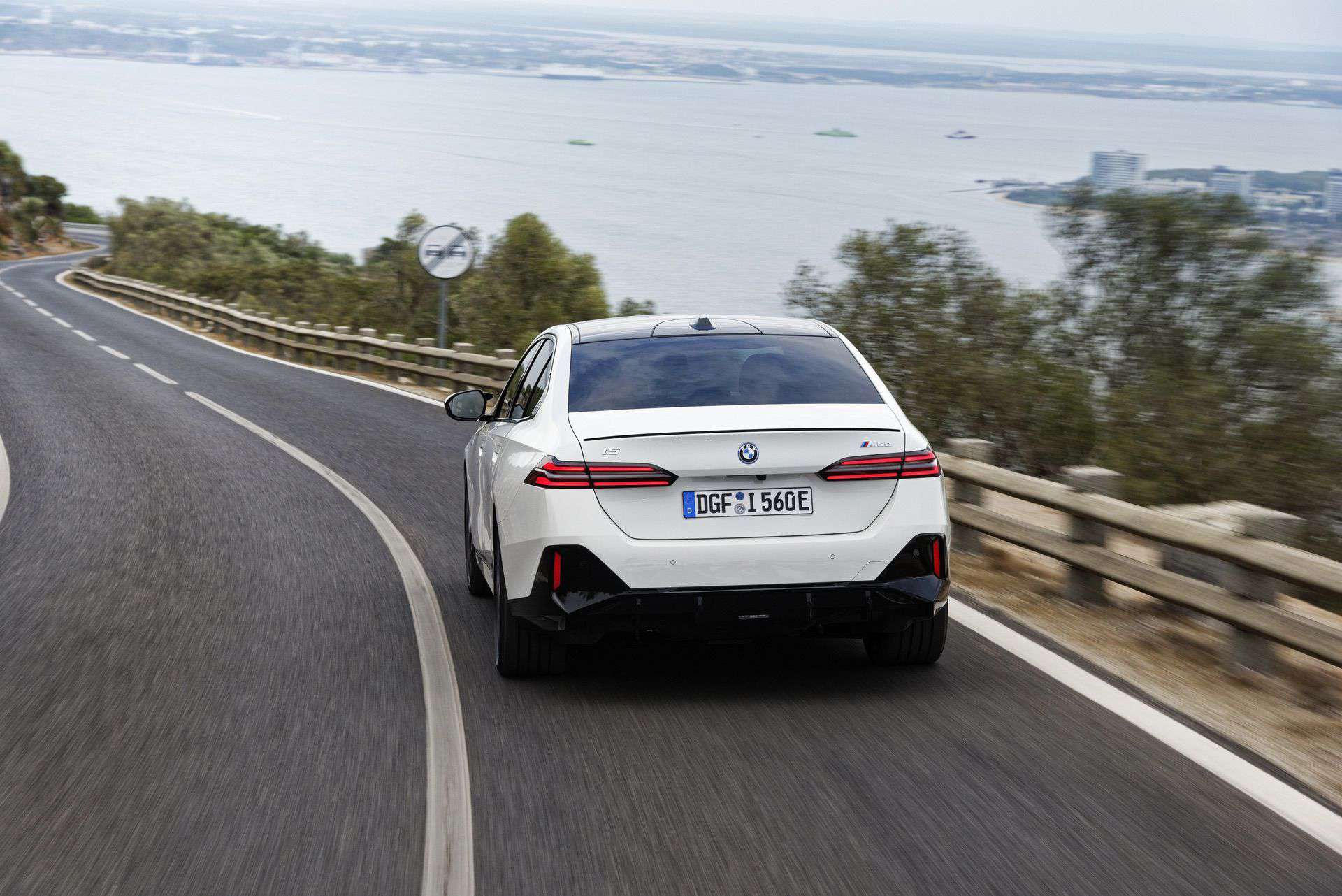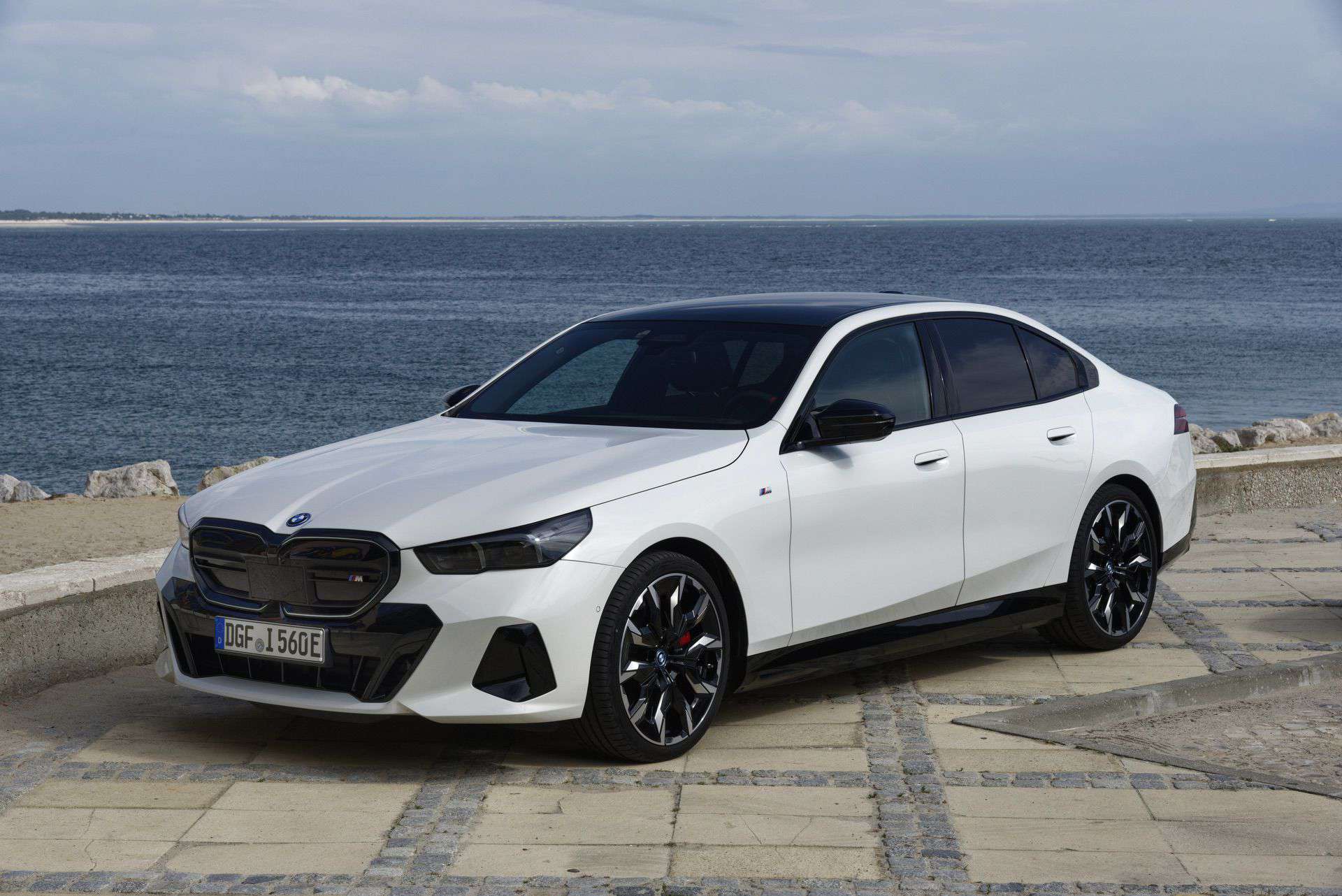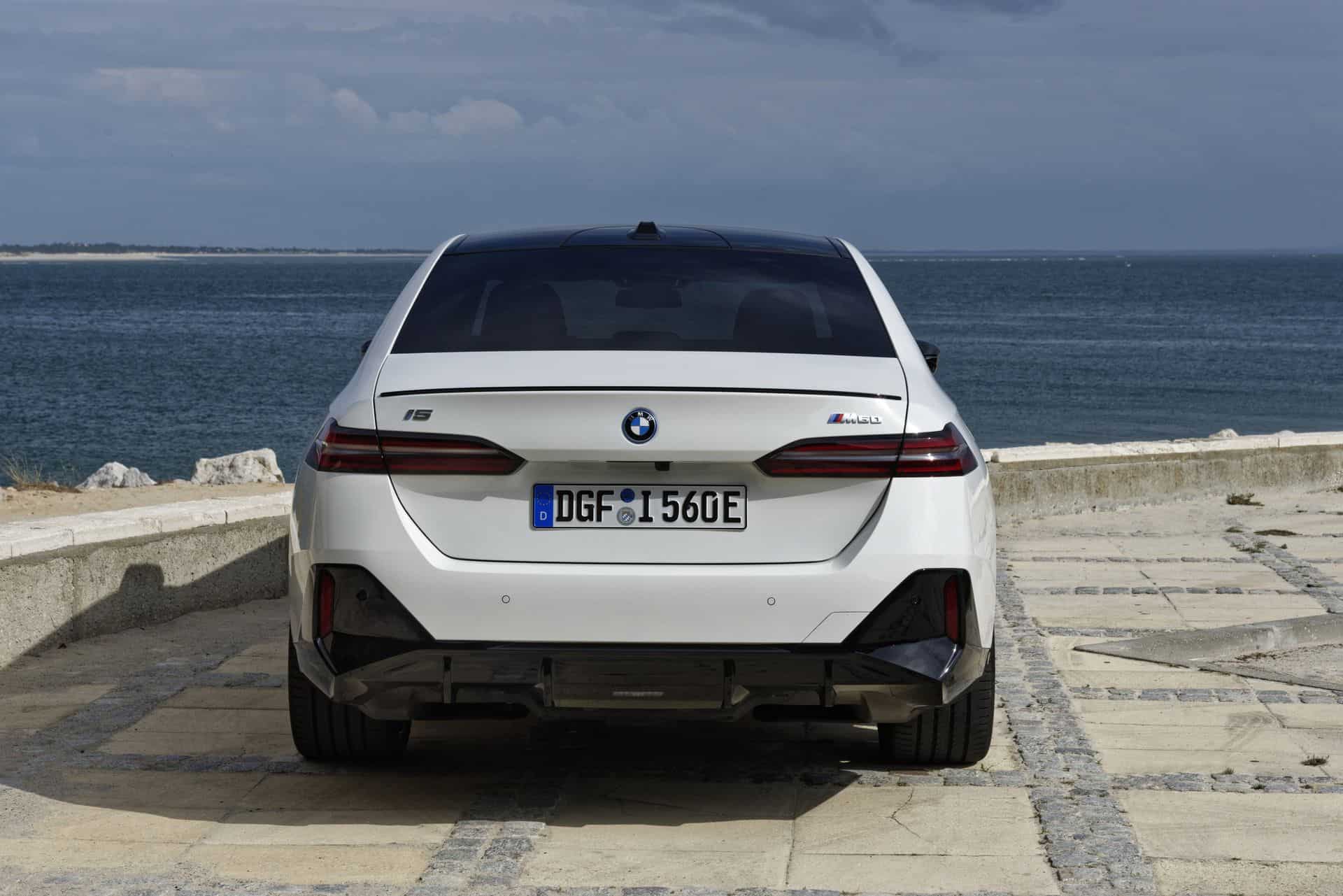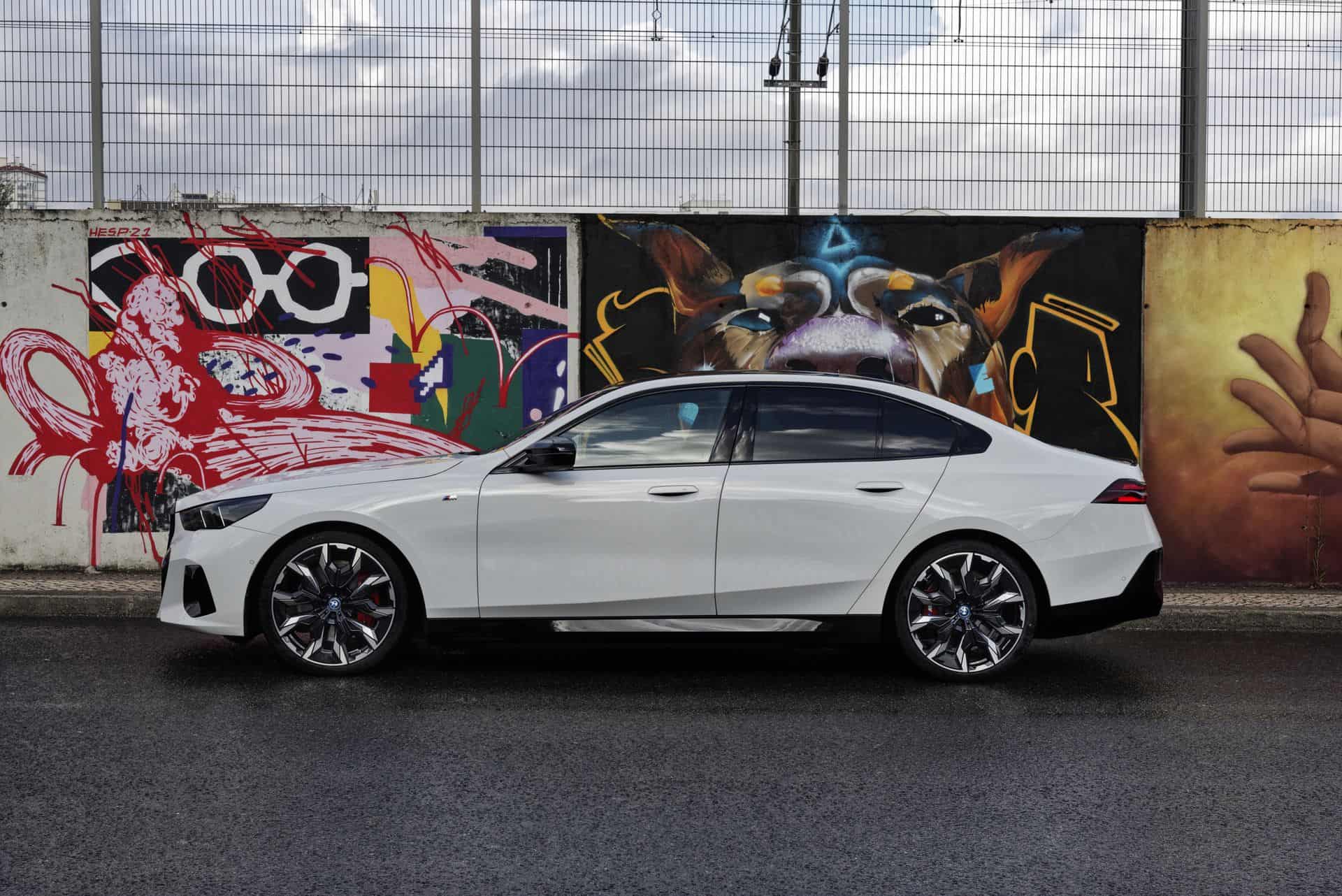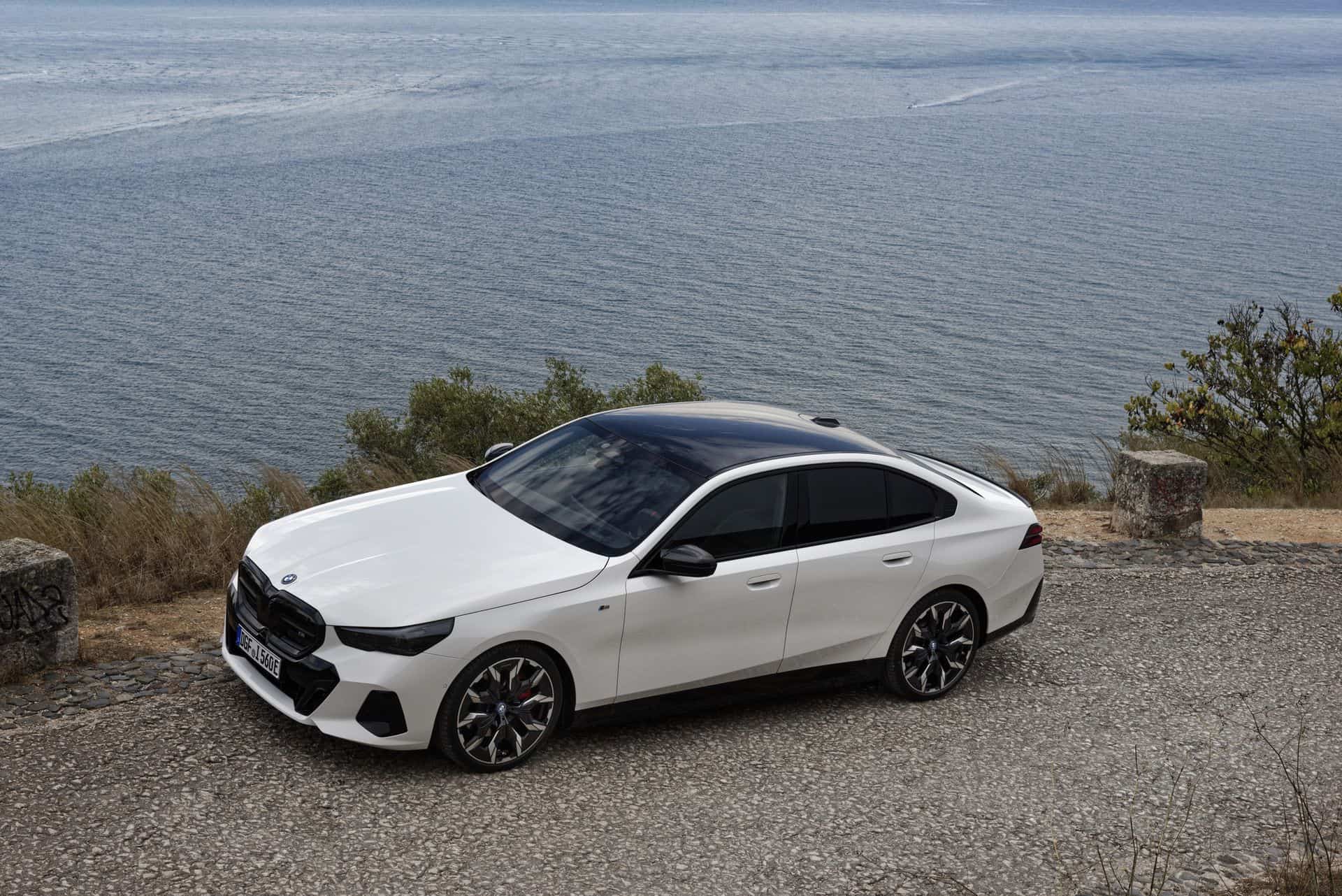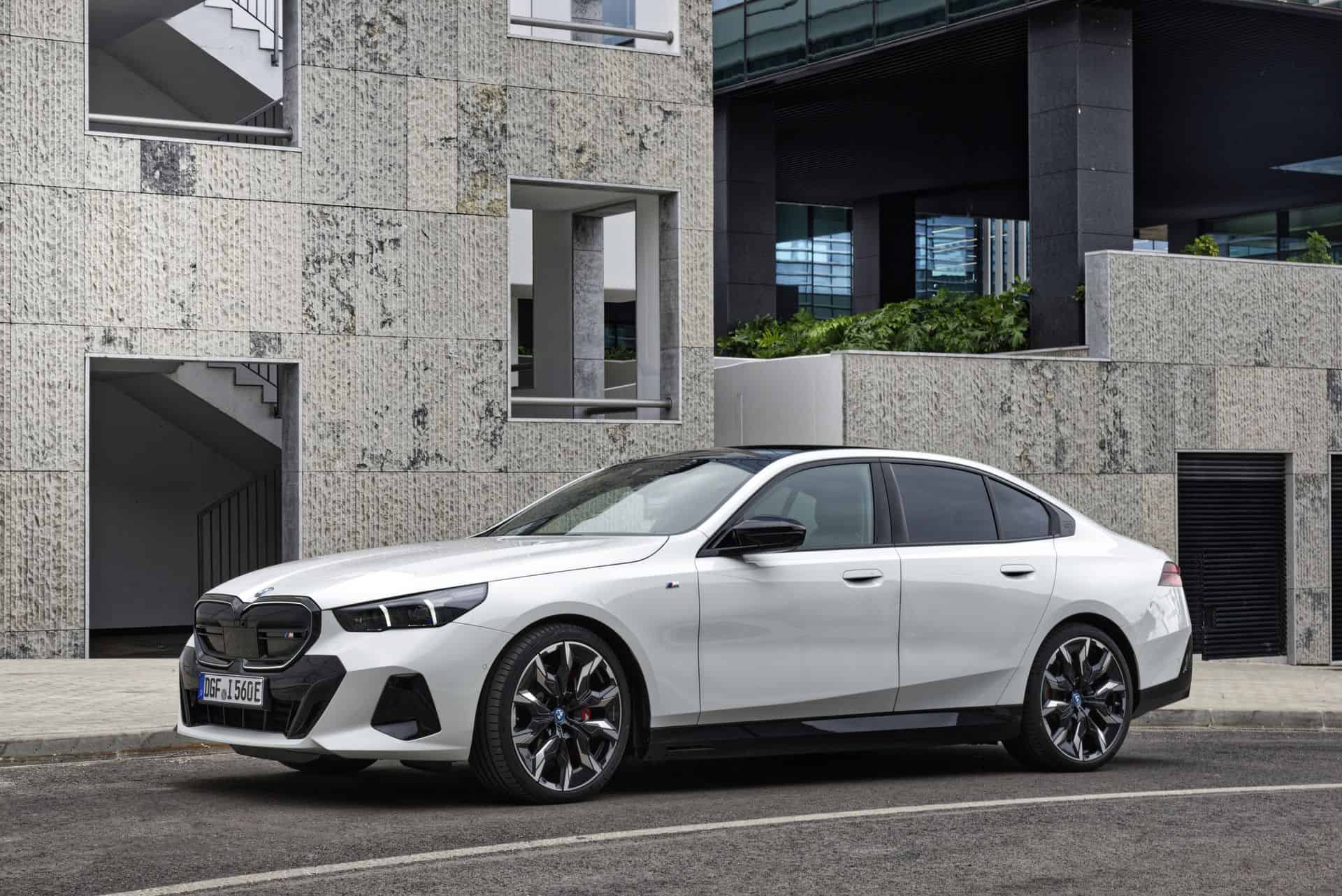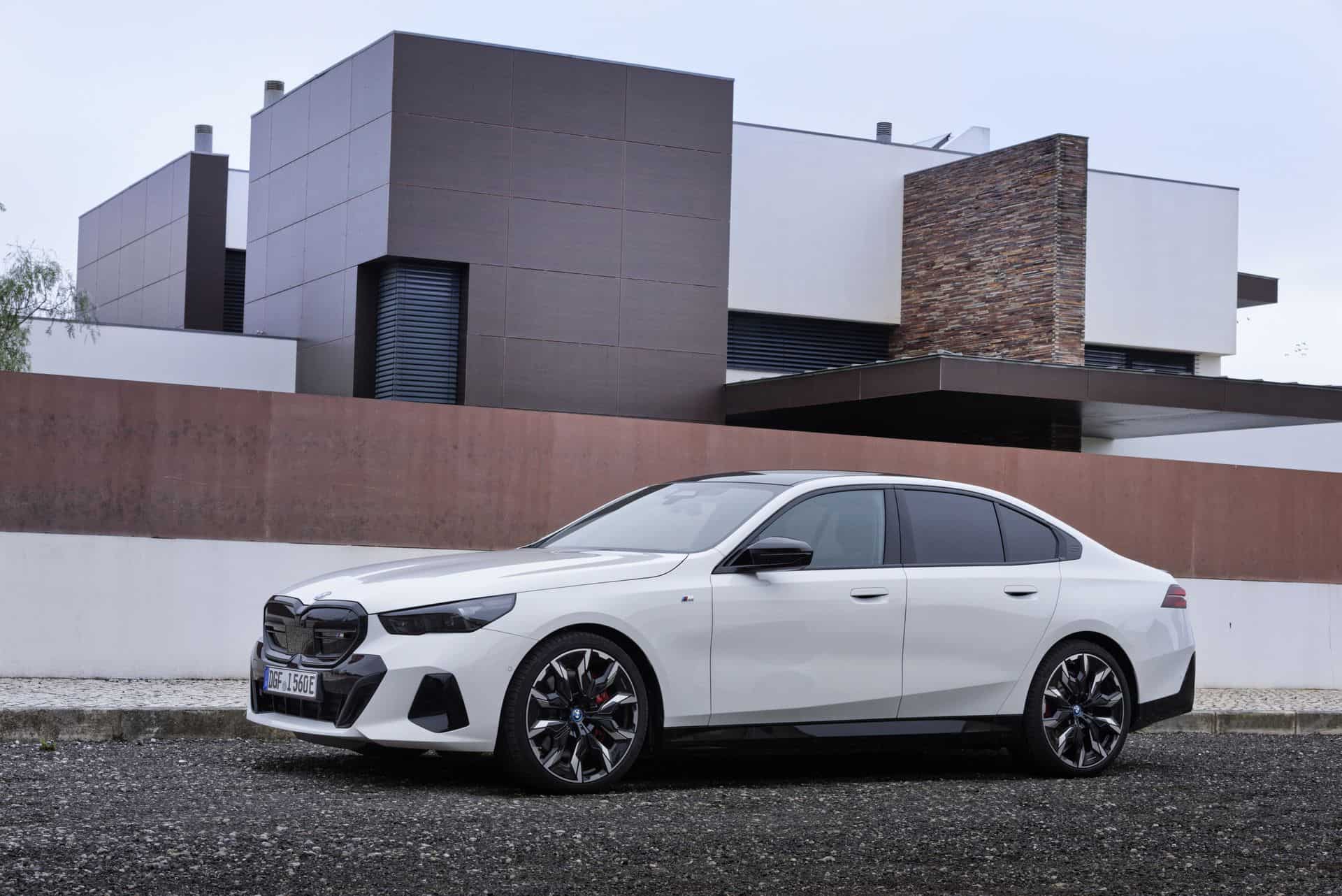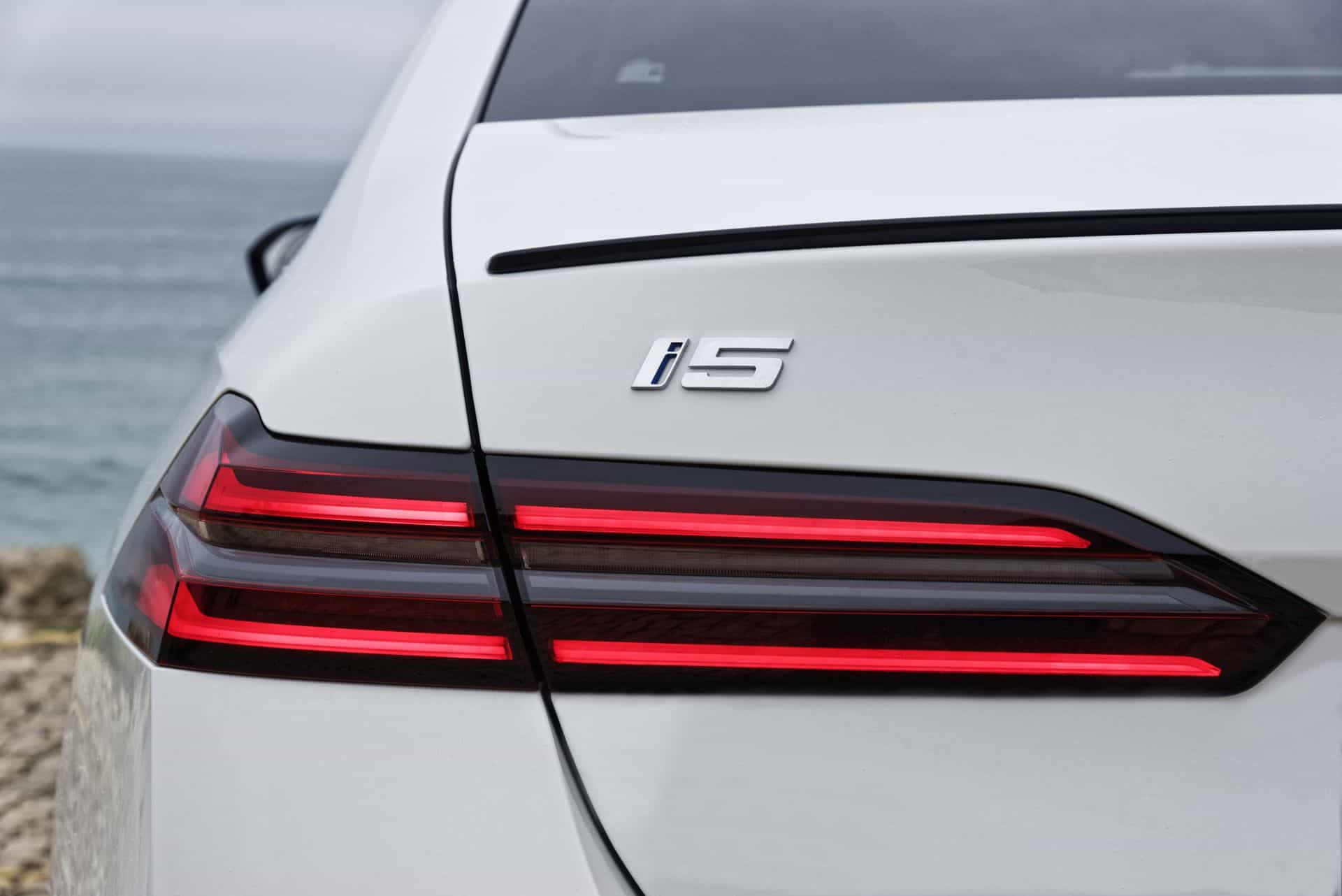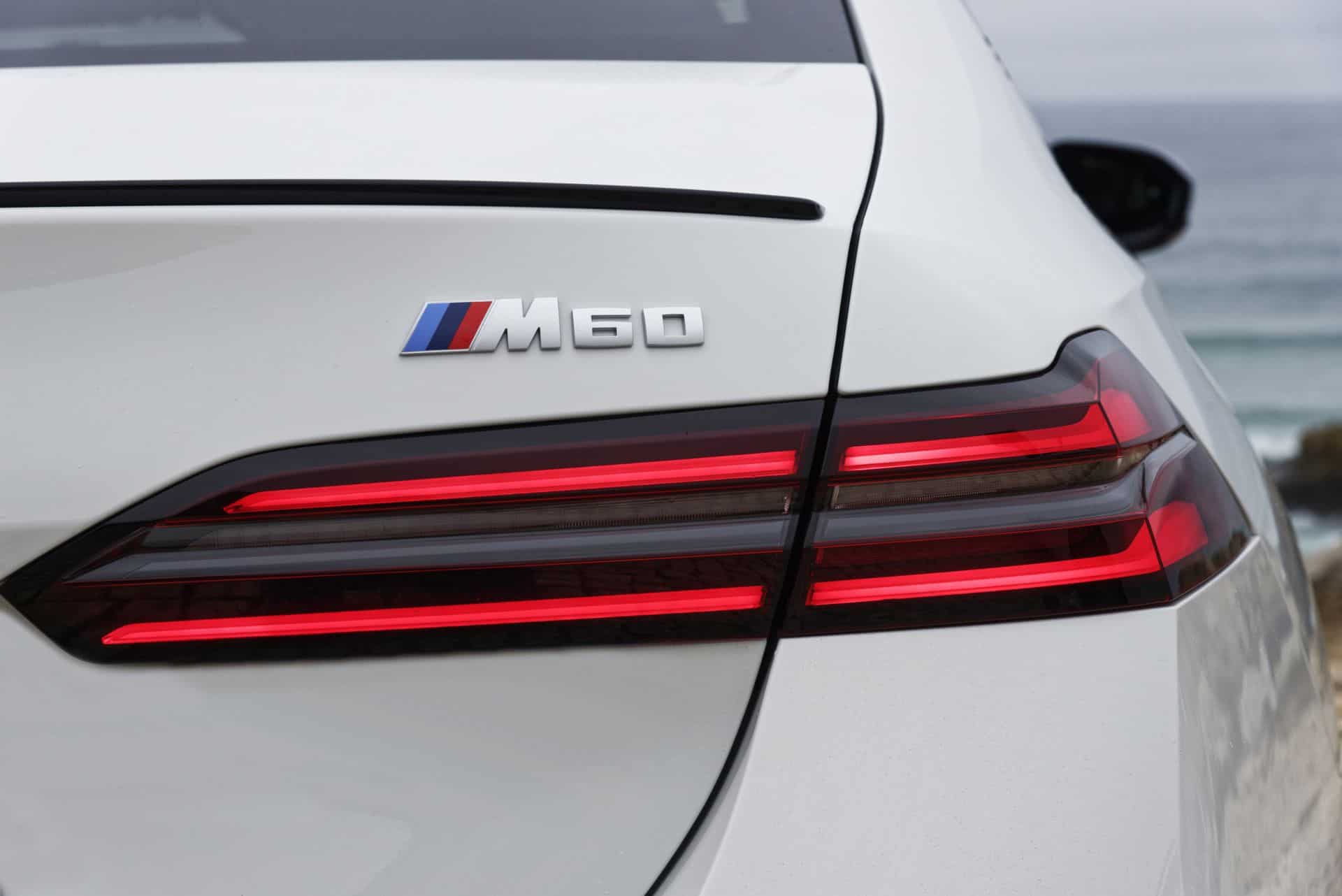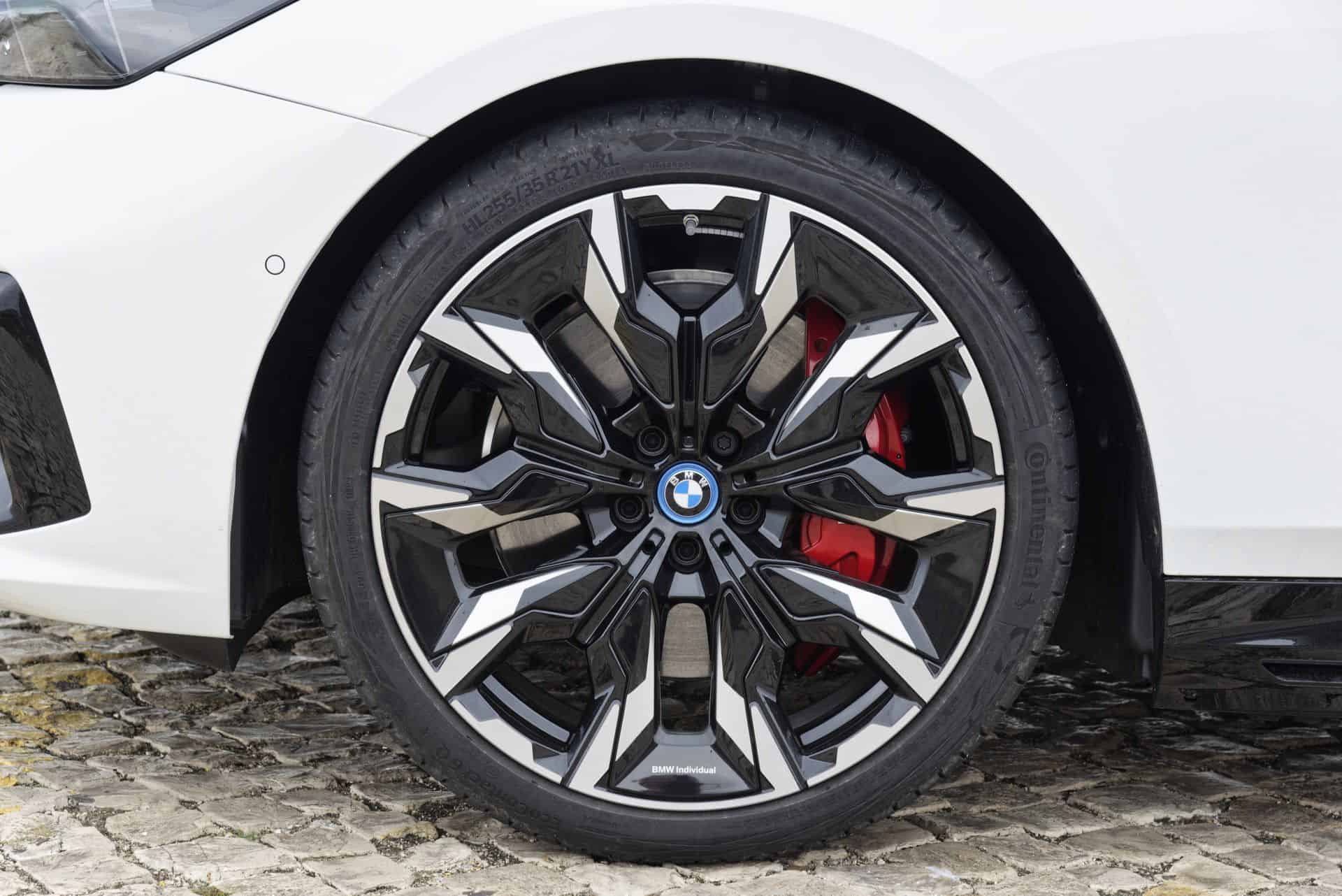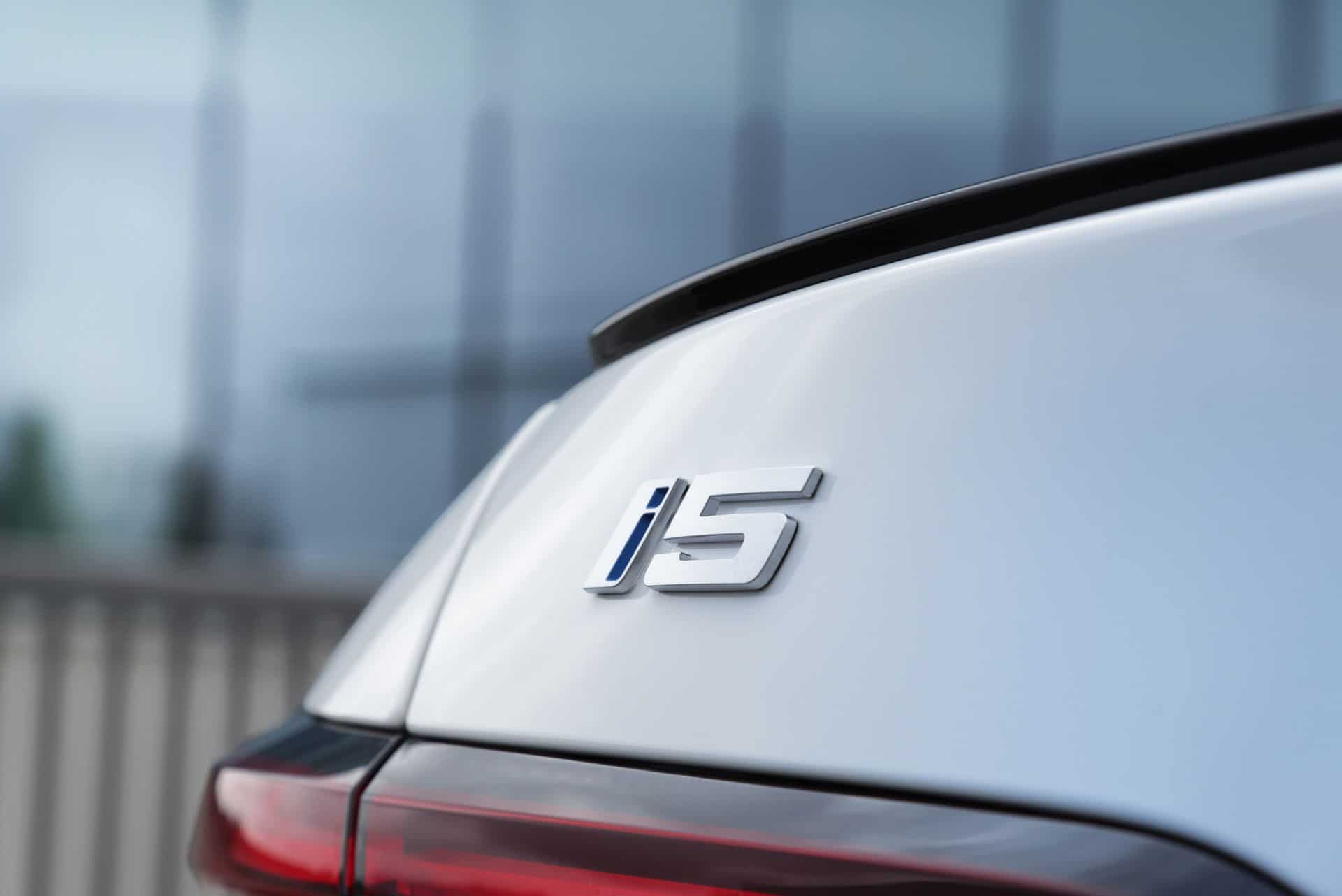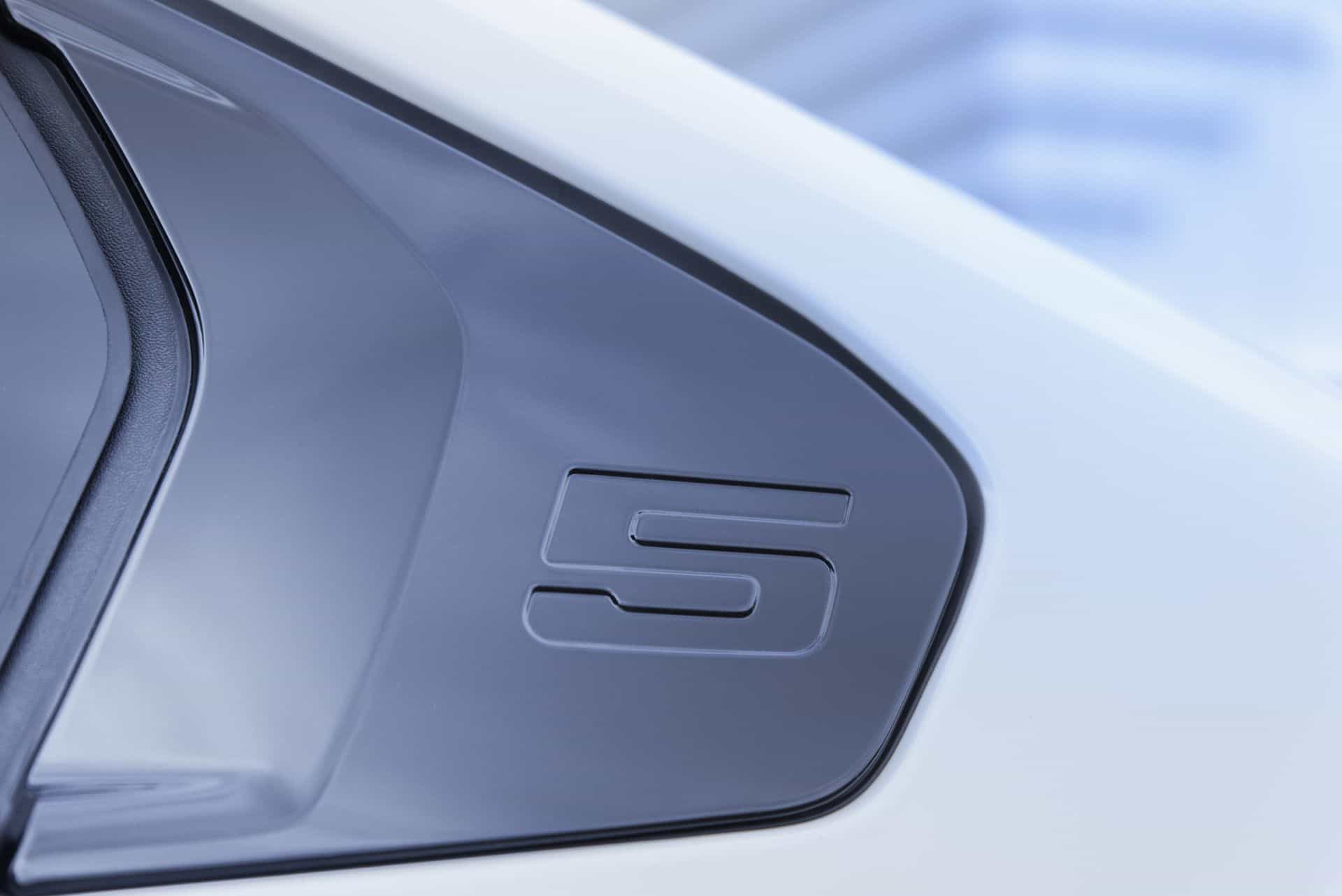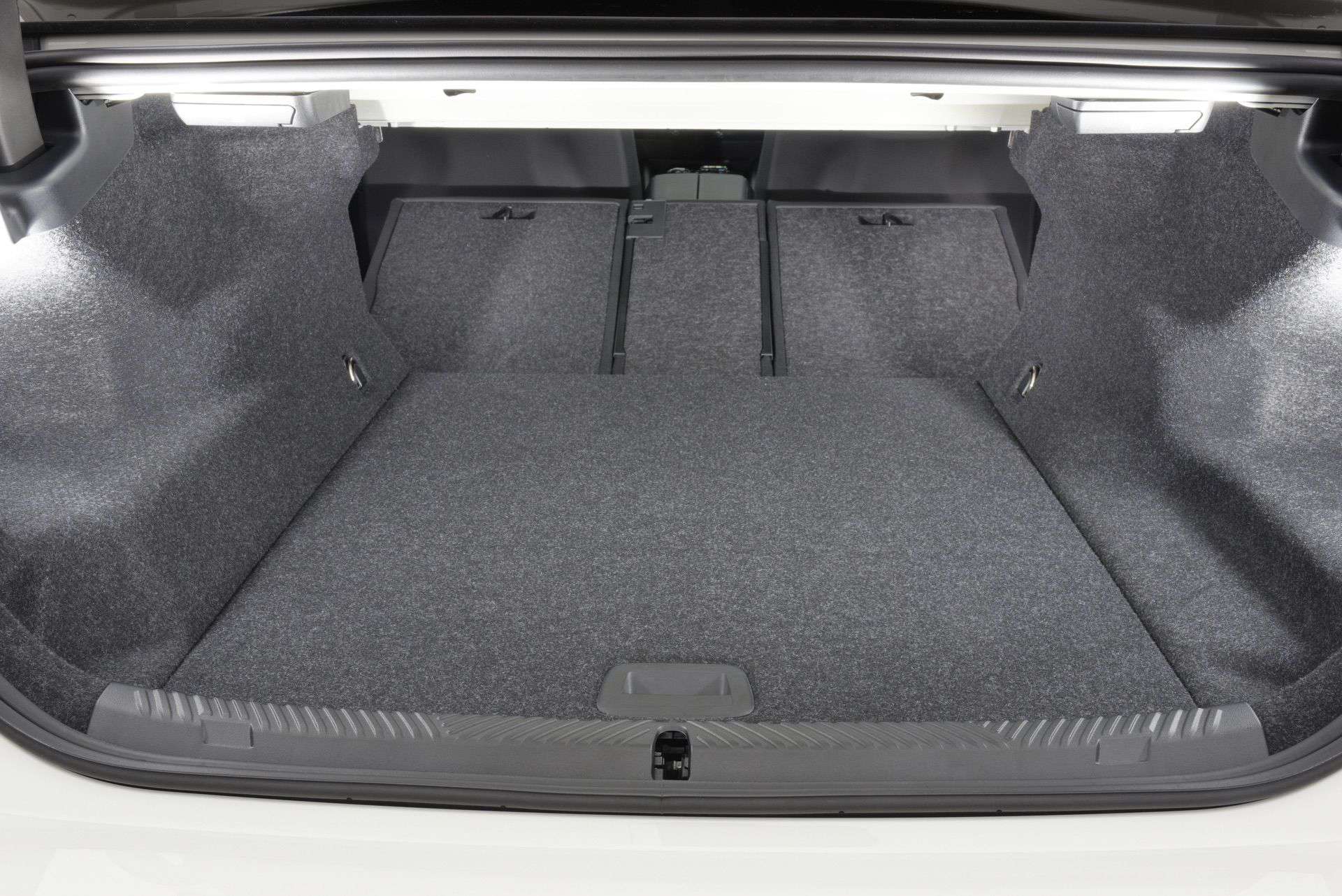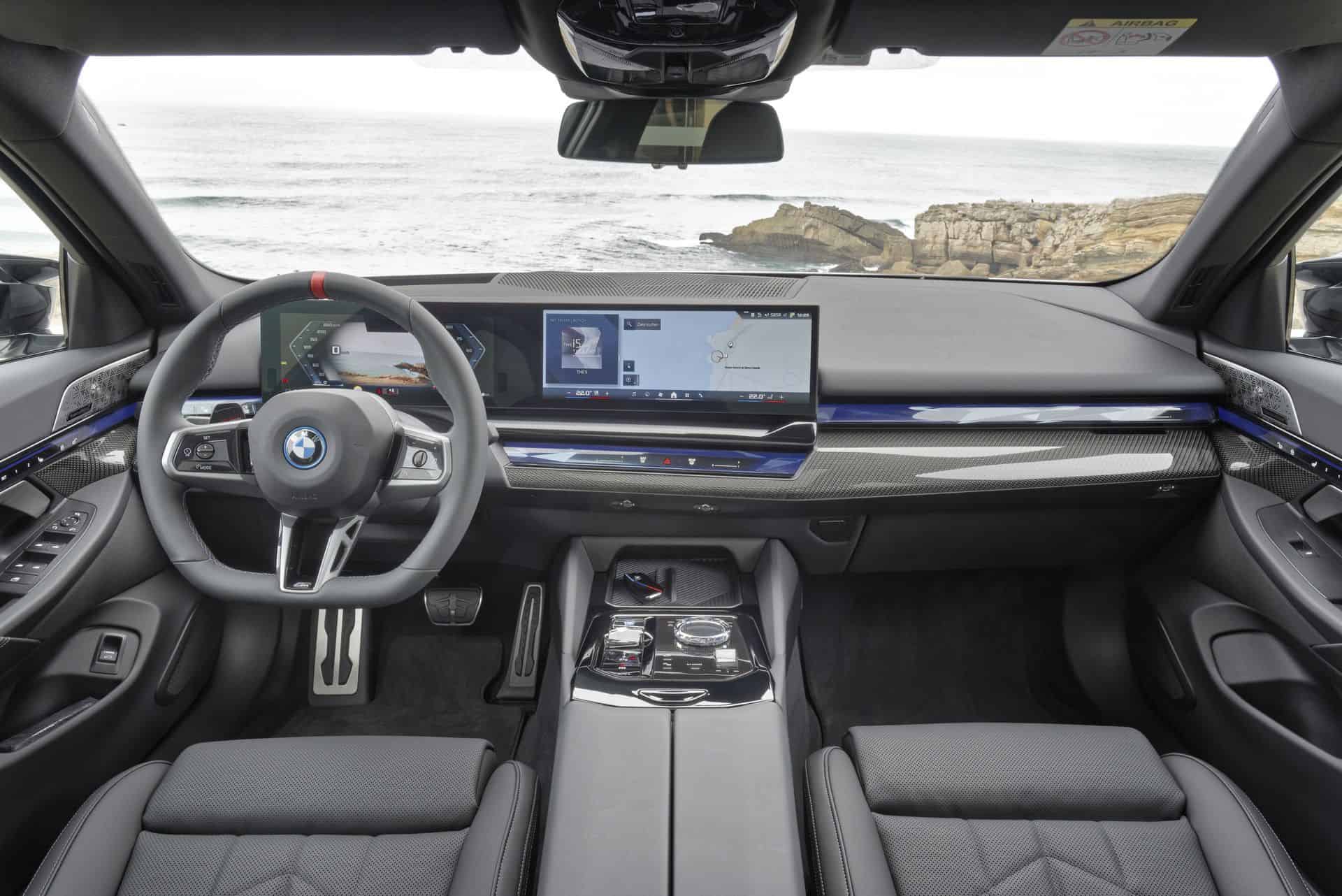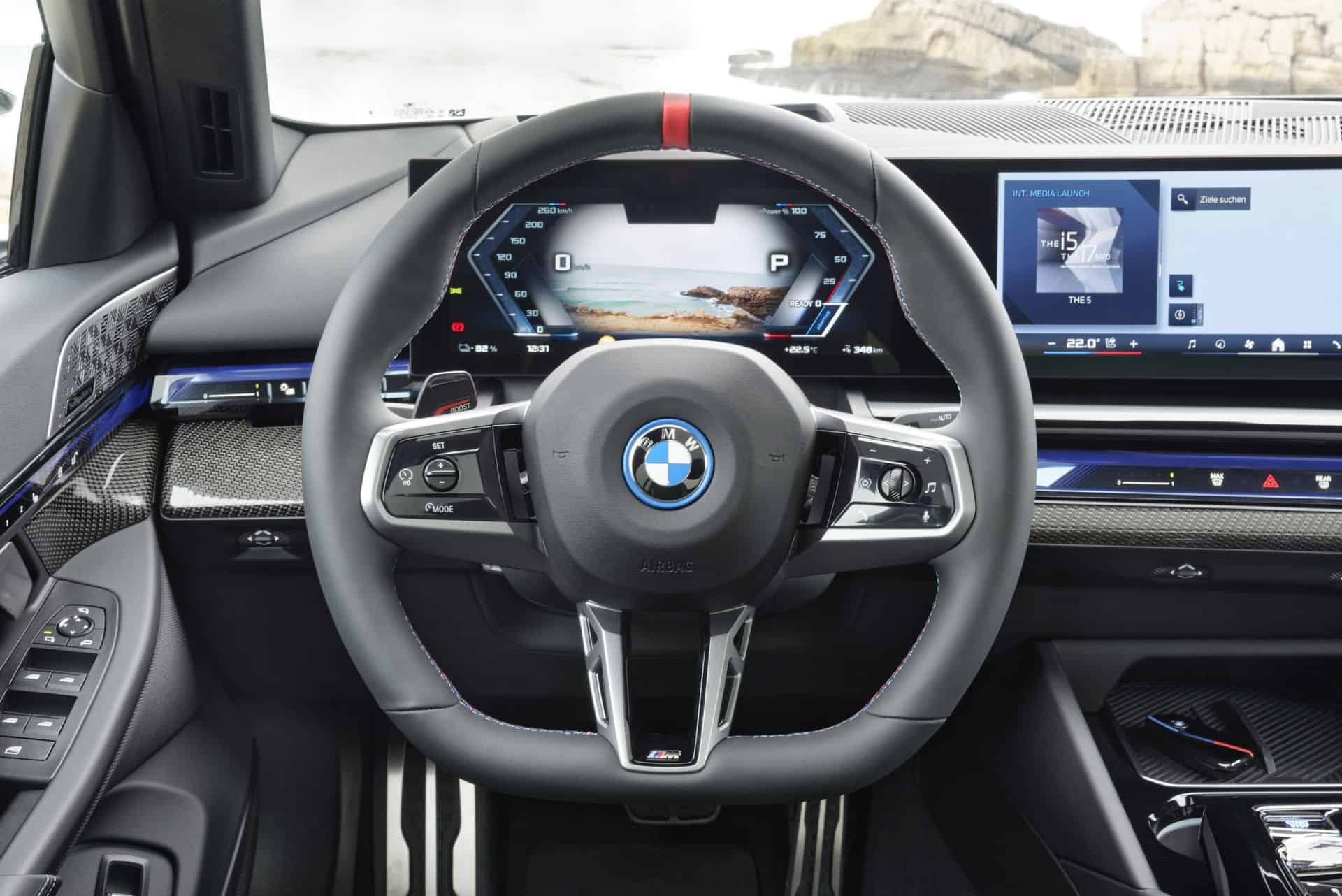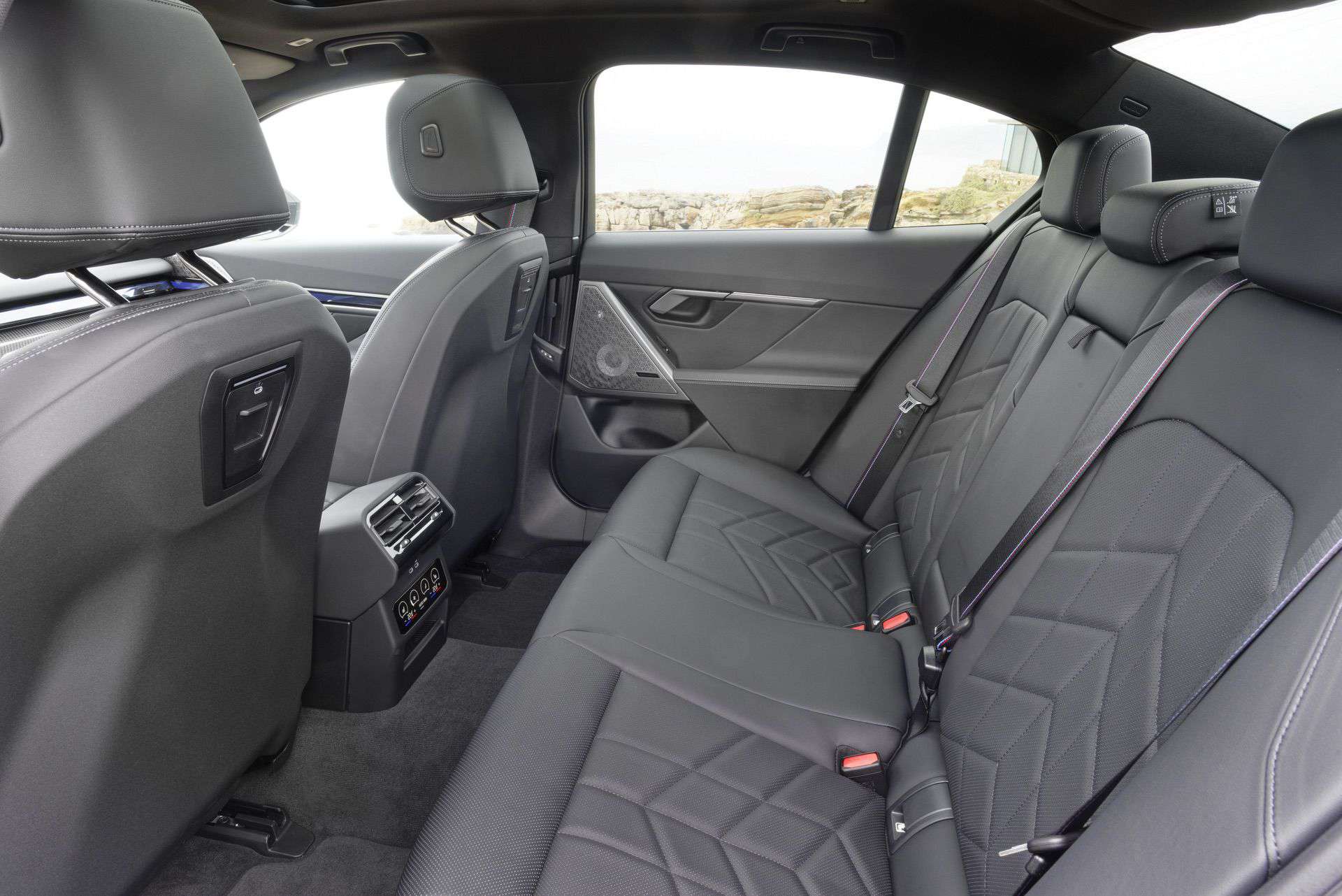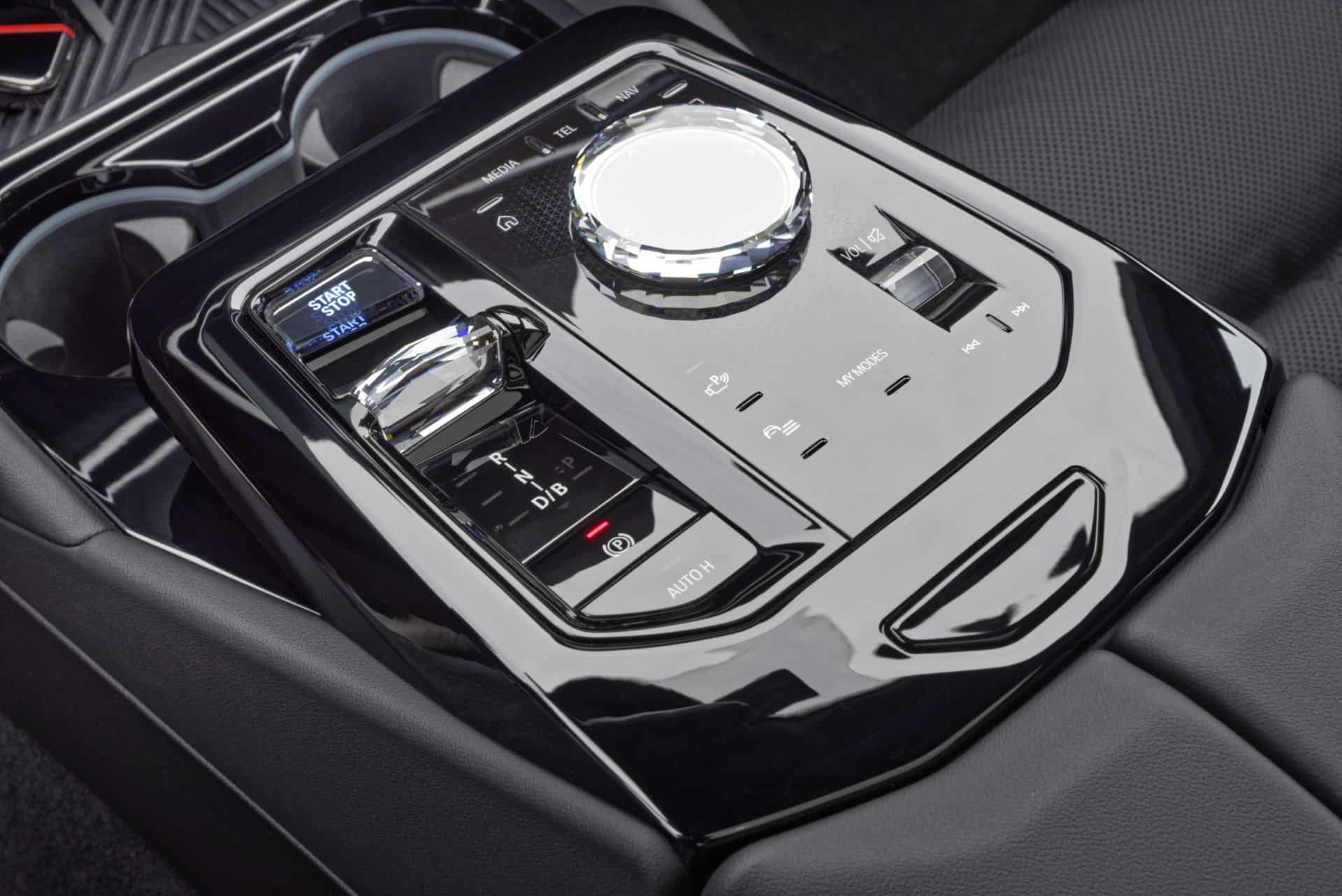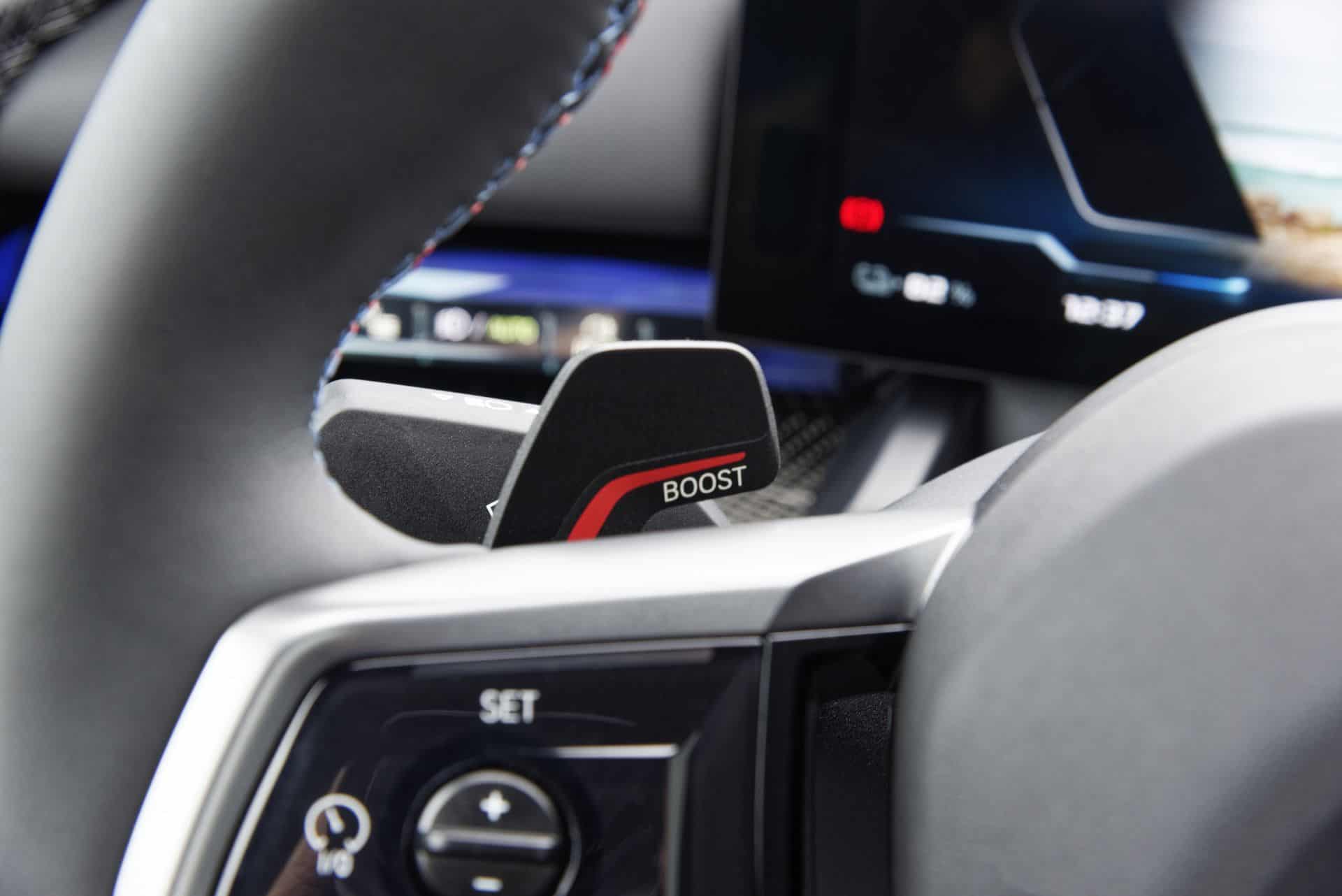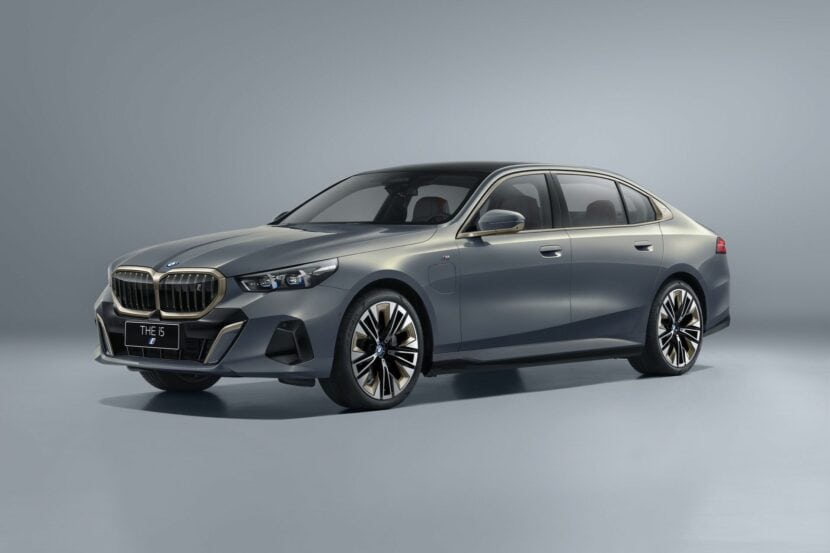The BMW i5 and i7 M70 launch event in Lisbon was nothing short of electrifying, both literally and metaphorically, as the German automaker unveiled its latest offerings to the international media. With the introduction of the BMW i5 M60, i5 eDrive40, and i7 M70, BMW is expanding their EV lineup. The star of the show was undoubtedly the BMW i5 M60, which proudly claims the title of the most powerful and fastest BMW 5 Series ever produced, poised to challenge even the upcoming BMW M5 (G90).
BMW i5 M60: The Most Powerful and Fastest BMW 5 Series Ever
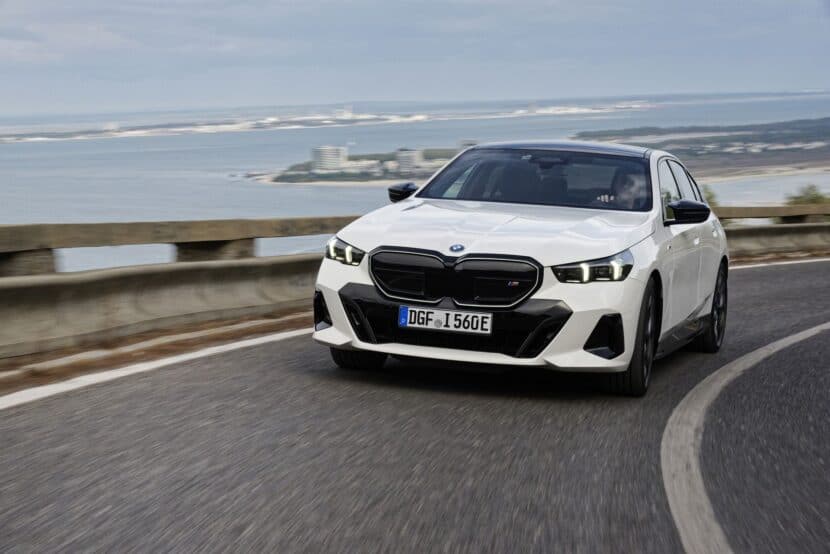
Even though BMW is shifting toward a new battery-electric vehicle architecture, set to debut with the Neue Klasse products in 2025, for now, it has revamped its existing CLAR architecture to accommodate the eighth-generation 5 Series and added the electric i5 version to the lineup. This flexibility allows BMW to offer a wide range of powertrains, from gasoline and diesel to plug-in hybrids and all-electric vehicles.
Creating an electric vehicle that can match the dynamics of a combustion-engine car is no small feat, given the fundamental differences in physics and weight distribution. So of course, I was excited to see if the BMW i5 M60 is as thrilling as it was promised to be.
BMW i5 M60
Good
- Amazing performance
- Luxury items and plenty of tech
- Driving Dynamics
Bad
- The electric range is too low
- Very expensive
Charging Capabilities
Both the i5 eDrive40 and i5 M60 feature a 81.2kWh lithium-ion battery, offering 11kW charging as standard (8.5 hours to full), upgradable to 22kW (4.25 hours) with the optional on-board charger. The i5 can handle a maximum DC charge of 205kW, allowing the battery to reach 80% capacity in just 30 minutes. The intelligent pre-heating system, either manual or automatic, ensures optimal battery conditions during charging, especially when the navigation system is active.
There are some changes to the curve. The BMW i5 charge curve is a significant improvement over the stepped curve in the iX. One of the most notable benefits of the smooth curve is that it allows the i5 to start charging at full power at higher states of charge (SoC). This is because the battery’s resistance increases as it charges, so reducing the charging power at higher SoC levels helps to prevent overheating. However, the smooth curve allows the i5 to gradually reduce charging power over time instead of in steps, which means that it can still charge at a relatively high rate even at higher SoC levels.
This is particularly beneficial for drivers who need to charge their car quickly, such as on a long road trip. For example, if you plug in your i5 with a 50% SoC, you can expect to charge at a rate of over 205 kW for several minutes. This is why BMW said you can snack charge for 10 minutes and get 156 km of range (WLTP).
Brake Regen
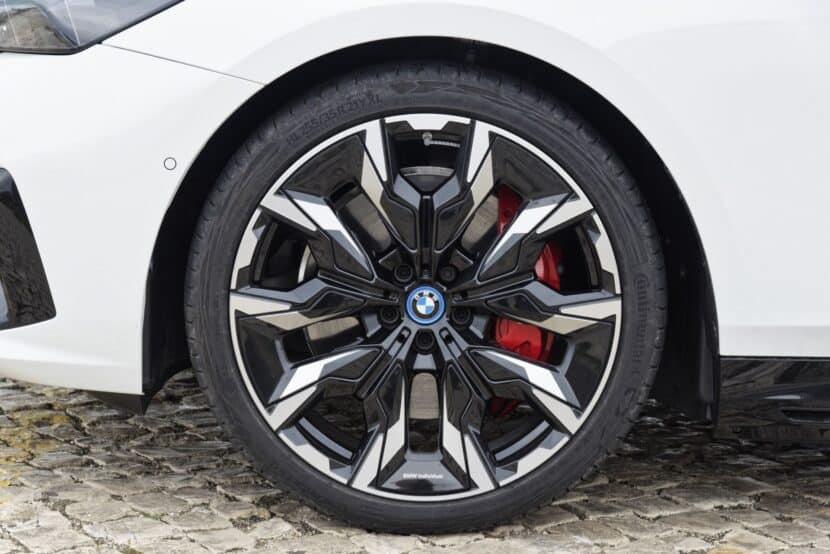
The i5 M60’s brake regen capability of 198kW, thanks to its second motor, provides a one-pedal driving experience in B mode, with the option to switch between Adaptive state, Low, Medium, and High settings in D mode. Some people prefer the adjustable B mode, but I’m more of an Adaptive Mode type of driver. It might be a hit or miss on certain routes, but overall, I feel that the predictions capability of the system are quite good.
Performance and Driving Dynamics
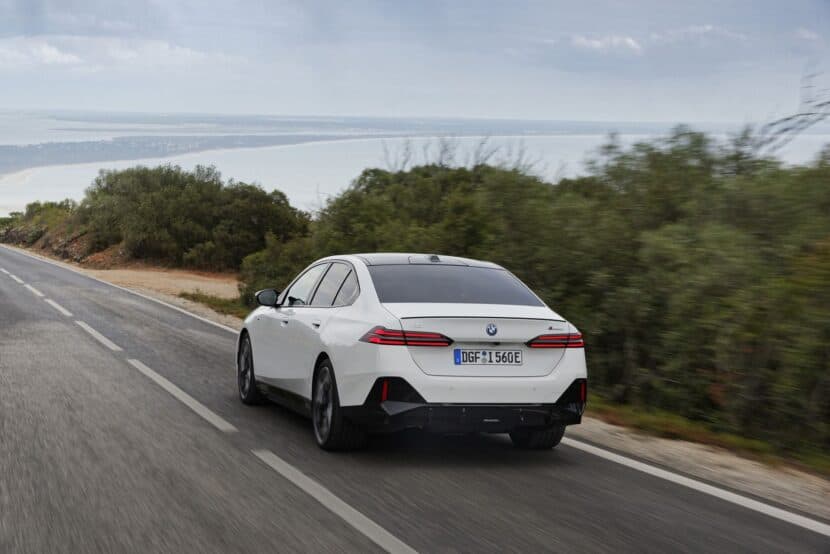
One of the key challenges in creating a high-performance electric vehicle is managing its weight. The BMW i5 M60 xDrive, with a DIN-empty weight of 2305 kgs (without a driver), offers four different suspension packages. These include the Basic package with Variable Sport Steering, M Sport Suspension, Adaptive Suspension Professional with Integral Active Steering, and Adaptive Suspension Professional with Active Roll Stabilization, which lowers the car by 8 mm (0.3 inches).
The progressive springs in the suspension offer increased spring rates as they compress, leveling out the car’s ride. The integral Active Steering, combining front and rear axle steering, enhances both high-speed agility and low-speed maneuverability. Additionally, Active Roll Stabilization, borrowed from the BMW 7 Series and i7, ensures stability in both vertical and transverse directions.
A standout feature of the i5 is its standard rear axle steering, allowing the rear wheels to turn up to 2.5 degrees in the opposite direction at low speeds, enhancing agility. This feature continues to benefit the car’s driving dynamics at higher speeds, while also increasing the agility of the car in city centers.
Advanced Driver Assistance Systems
In terms of advanced driver assistance systems (ADAS), the BMW i5 models boast an impressive array, with 40 driver assistance systems, 20 sensors, and an 8-megapixel camera, complemented by a full-range radar capable of detecting objects up to 300 meters away. Every i5 comes equipped with Automatic Park Assistant and Backup Assistant for automated maneuvering in reverse. The standout feature is actually the Automatic Lane Change. Essentially, it’s a simpler way to change lanes by turning your head to the left or right. It might be a gimmick, but after I tested it for a while, I came to like it.
But the most important thing: how does it drive?
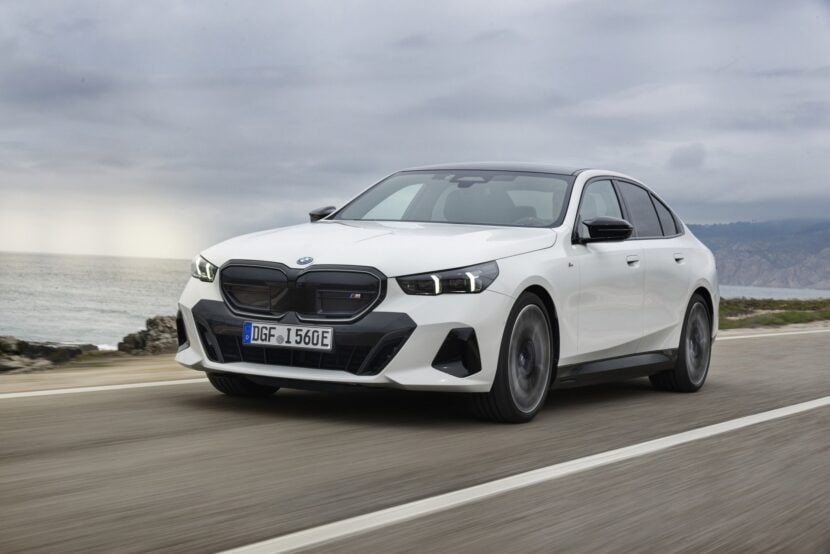
From the get-go, it’s abundantly clear that the BMW i5 M60 is a true powerhouse. With its 590 horsepower, the electric sedan’s acceleration is exceptionally smooth and gradual. Yet, a mere tap on the accelerator pedal unleashes a surge of power, even more so when using the Boost Mode (83 extra horsepower for 10 seconds). Despite its weight, which surpasses that of the i4 M50 at 2305 kg (5081 lbs) according to DIN standards, the springs are impressive. While it may not reach the 650-horsepower mark of the latest BMW i7 M70, it’s almost as quick, clocking in at 3.5 seconds for the 0 to 60 mph sprint compared to the i7’s 3.7 seconds. I clocked 3.61 seconds on the GPS RaceBox.
During high-speed cornering, the BMW i5 M60 does exhibit some body roll, especially in Comfort mode. Interestingly, this seems to be by design. The ethos behind the i5, particularly the i5 M60, is to offer a driving experience characterized by a natural and slight body roll, eschewing an overly responsive and jittery feel, or so BMW claims. In Sport mode, the handling tightens up considerably.
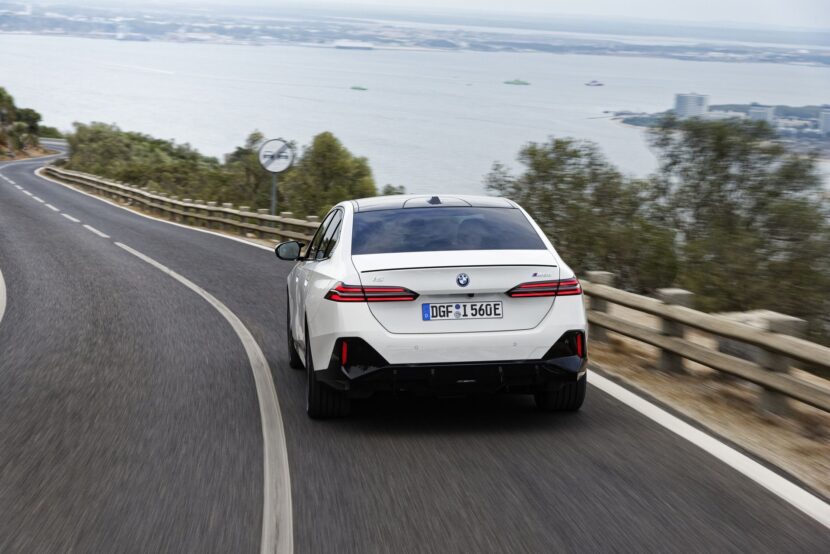
Power distribution from front to rear is executed with pinpoint precision, adapting to the driving circumstances seamlessly. In tight turns, the front end is quite precise, delivering rapid and confident turn-ins. When the rear end demands more grip and precision, power is subtly shifted to the rear, delivering that iconic BMW rear-biased driving sensation. Even with all the electronic stability controls engaged, I did manage to provoke some wheel spin a few times. Driving enthusiasts will appreciate that.
The Active Roll Bars work in conjunction with the active dampers to provide a neutral driving experience in all situations, aiming for a natural and controlled body roll instead of excessive responsiveness. The steering input is a bit dead off center, but it progressively gets better at higher speeds and especially in the Sport Mode.
Switching between Comfort and Sport modes provides different driving experiences, with the steering system offering increased directness, precision, and feedback through variable rack geometry and acoustic decoupling. Various steering bushings further enhance road feedback, and controlled two-valve dampers contribute to overall comfort. The overall result is a driving experience that balances performance and comfort.
Comparison to i4 M50 and i7 M70
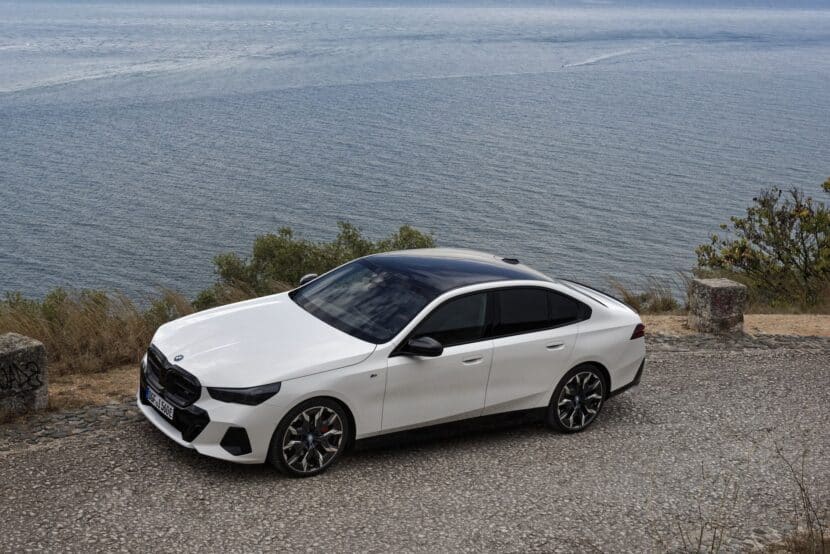
So is the BMW i5 M60 closer to an i4 M50 or to an i7 M70? I asked some BMW engineers the same question, just to have an idea of their baseline. As expected, they aimed to create a business sedan closer to a 3 Series than to a 7. Even with its lower power out output (536 hp), the i4 M50 is the more dynamic and fun car to toss around. It is closer to a “typical” BMW. Funny enough that I know call ICE BMWs as being typical.
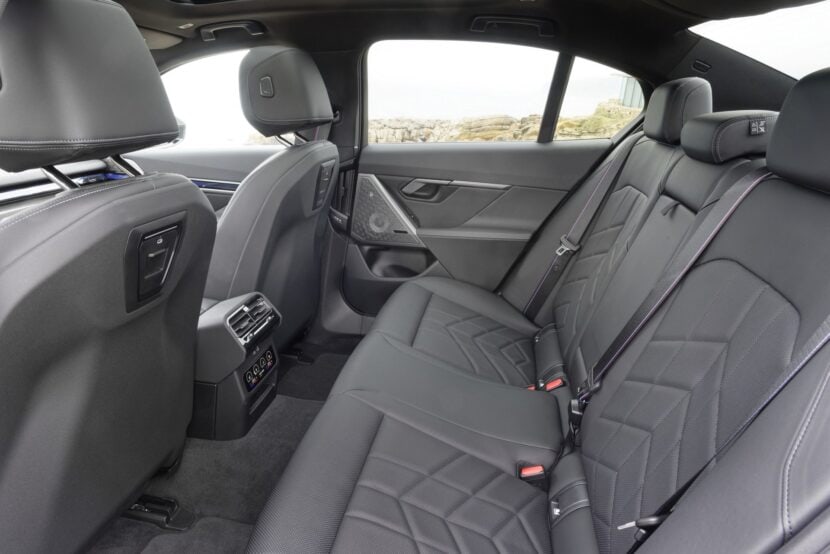
On the other hand, the BMW i5 M60 is the more mature electric vehicle. It doesn’t aim to impress you with its cornering capabilities but rather with its balanced drive. It offers a good blend between daily driving comfort and weekend fun. Naturally, it’s also the more luxurious and spacious of the two. I tested the rear space for three adults: a couple measuring in at 1.89m (6″2) and a third at 1.79m (5″8). There was a decent amount of legroom and around 5 centimeters of headroom.
So if you’re looking for a luxurious and spacious daily driver, or a family hauler, then the BMW i5 M60 will tick those boxes. Same as the i5 eDrive40 would as well.
The 5 Series was always the pillar of the brand, an iconic car that often sets benchmarks for its competitors. And that hasn’t changed with the new G60 generation. I have yet to test the plug-in hybrids or the gasoline models, so will see if my opinion of the car changes.
Falls short on electric range
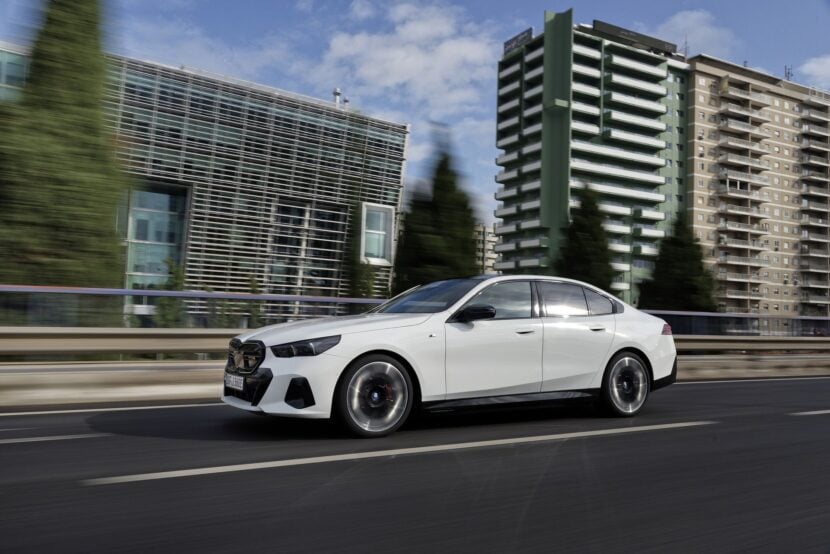
There are some drawbacks though. Firstly, the range. It is unacceptable to have such a low range in the BMW i5 M60 xDrive. Granted, the 258 miles (EPA) could be extended in real life with tricks like the MaxRange or aggressive one-pedal driving. But in the end, if you live in harsh winter conditions, that 258 miles will turn more into low 200 miles if you don’t pre-condition the battery. It still baffles me that BMW couldn’t figure out a way to include the i7’s battery in the package and potentially cutting weight in other places.
Secondly, the price. I get it: battery packs are expensive. But at $85,095, the i5 M60 is $5,000 more than one of my all-time favorites – the BMW M550i xDrive (G30). Inflation and all, I still wish it was closer to the $80K mark.
BMW i5 over Tesla Model S?
Despite its shortcomings, I still feel that the BMW i5 M60 is a better buy than a Tesla Model S, for example. Sure, the Tesla will win on range and infrastructure, but it falls short on pretty much every luxury aspect. Could BMW have done it better? Likely, but unfortunately the CLAR architecture has its own limitations.
In the end, the BMW i5 offerings will likely be the most popular variants within the G60 lineup and will give buyers a choice between the i4 and i7. I just ordered a BMW i4 eDrive40, due to timing, but if stars would have aligned in time for me, I would have gone for the new i5. I certainly look forward to putting the i5 40 and i5 M60 to a more scientific test in the U.S. to determine their efficiency. This Portugal trip was all about shenanigans and top speeds.
The BMW i5 M60 xDrive has a range of 258 miles. The single-motor BMW i5 eDrive40 has a range of 295 miles. Both on EPA ratings.
Yes! All BMW i5 variants are all electric. BMW will offer gasoline and plug-in hybrid models as well.
The BMW i5 M60 starts at $85,095. The i5 eDrive40 has an MSRP of $67,795.


